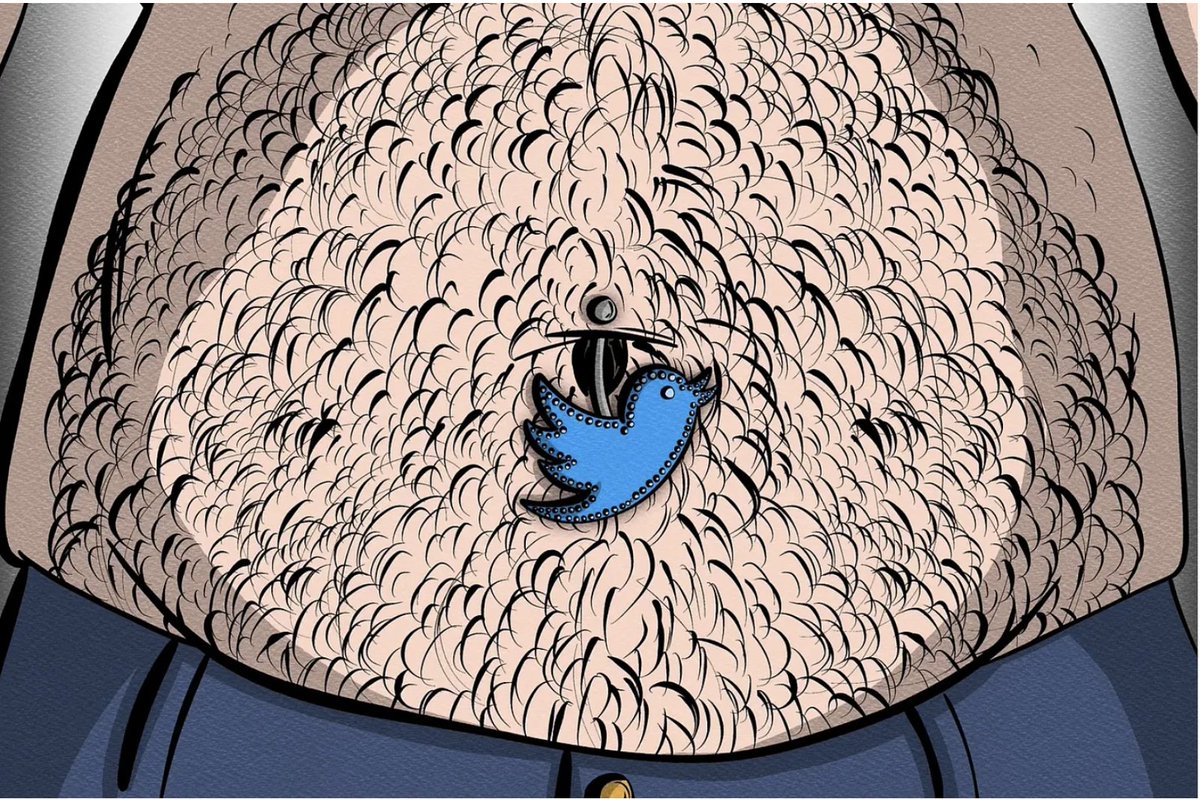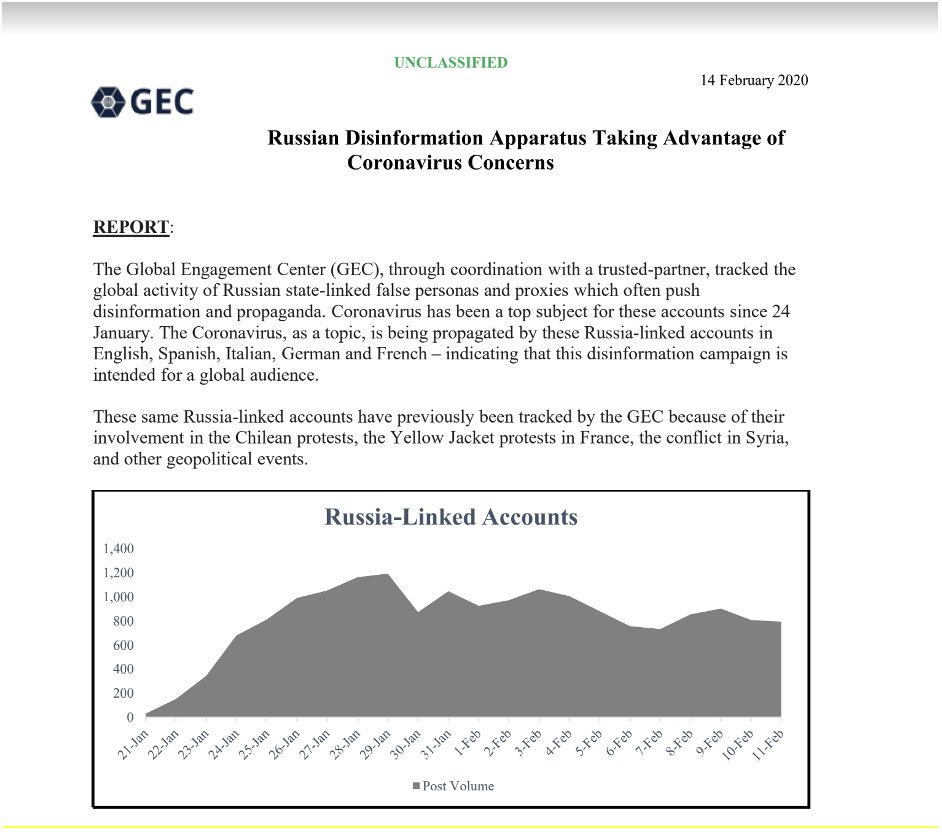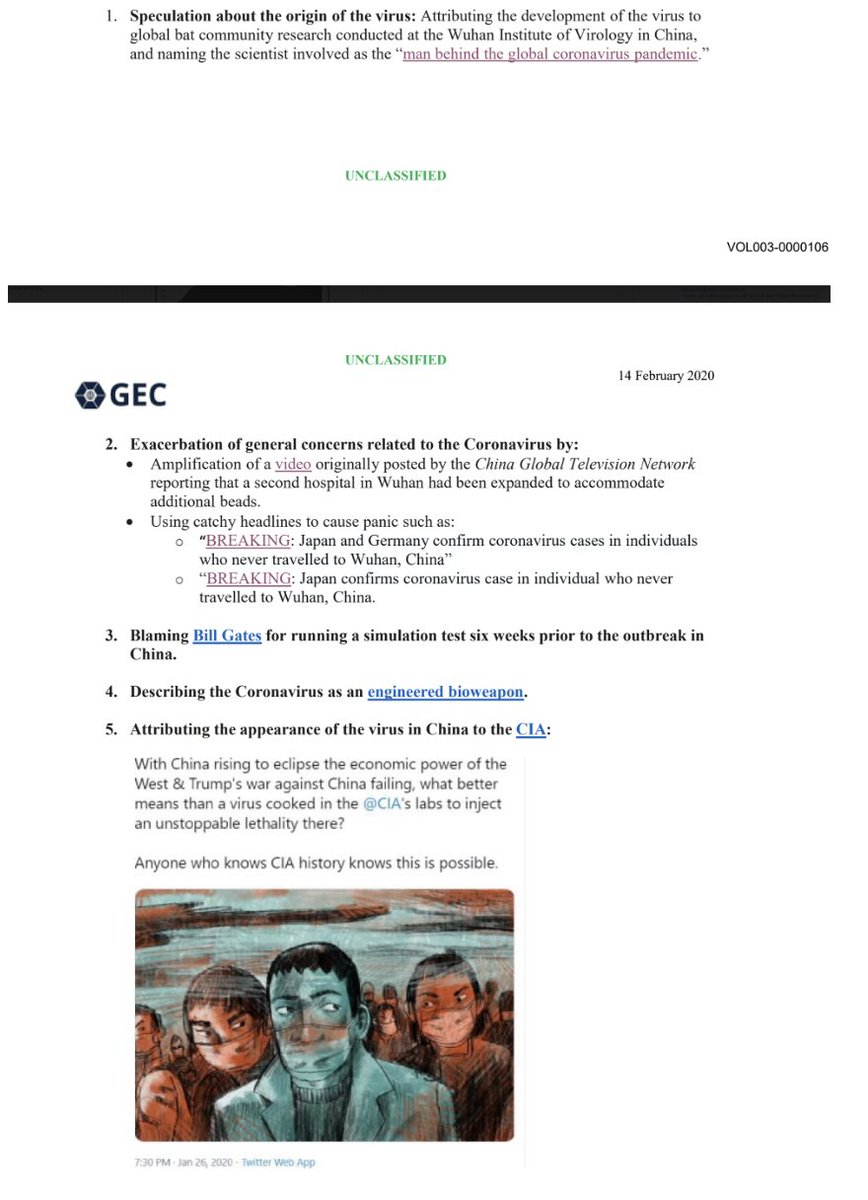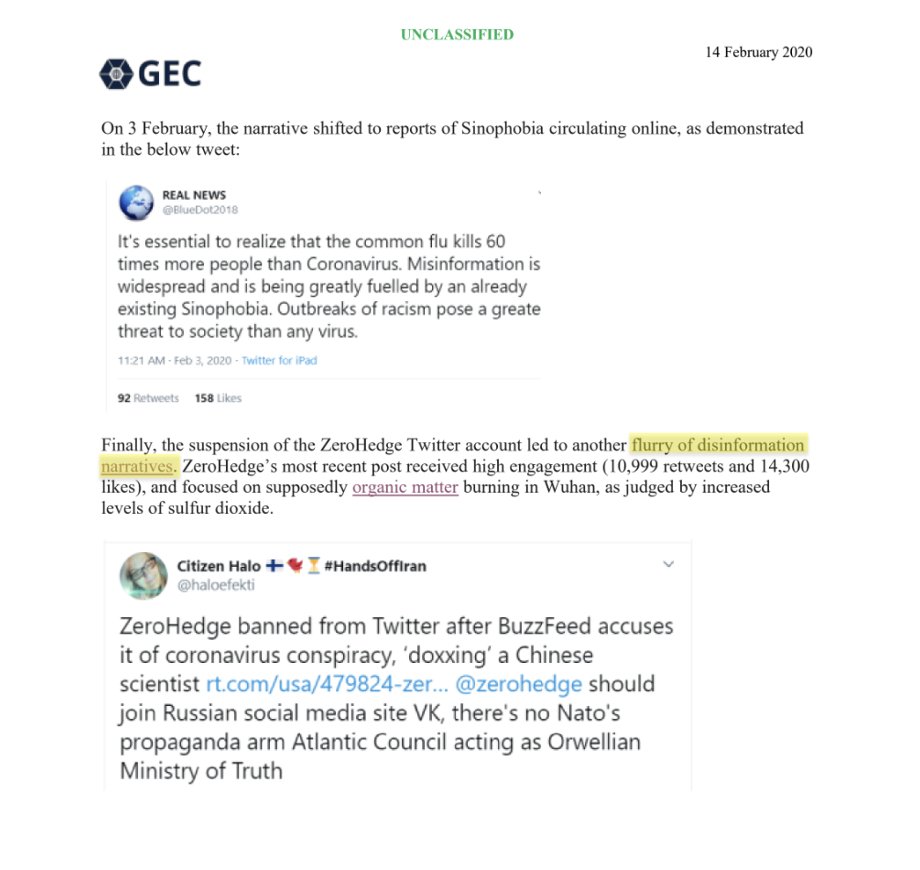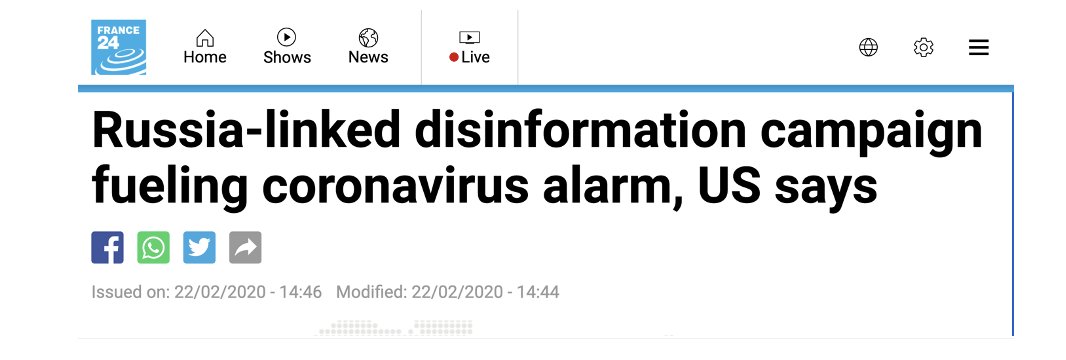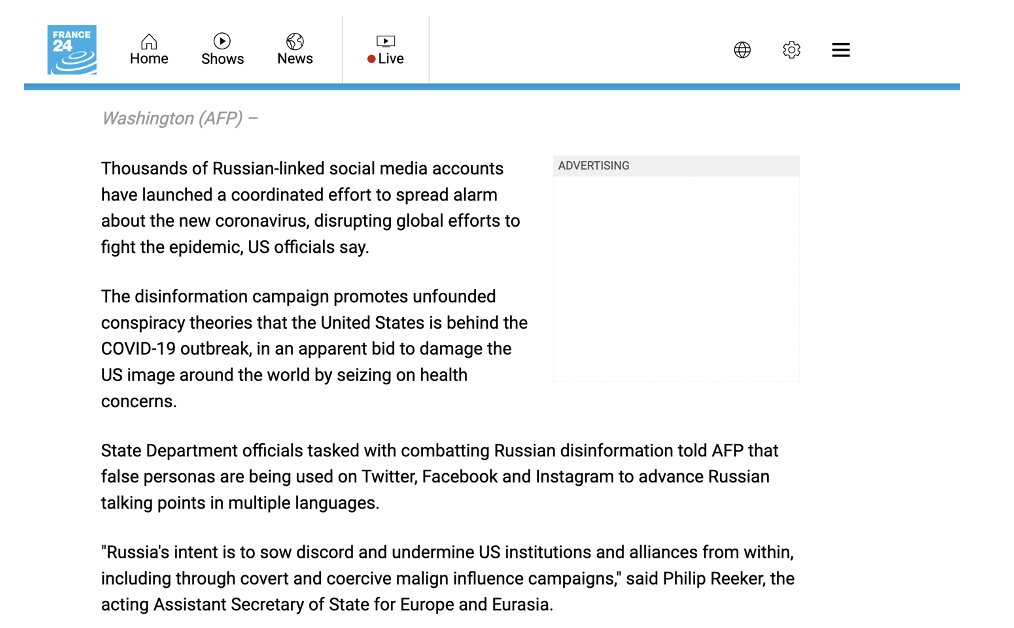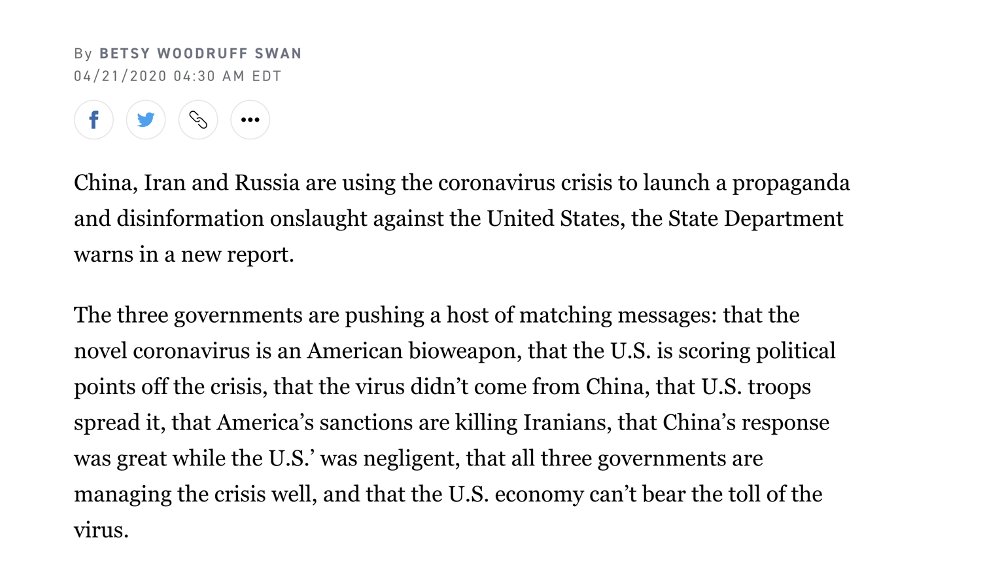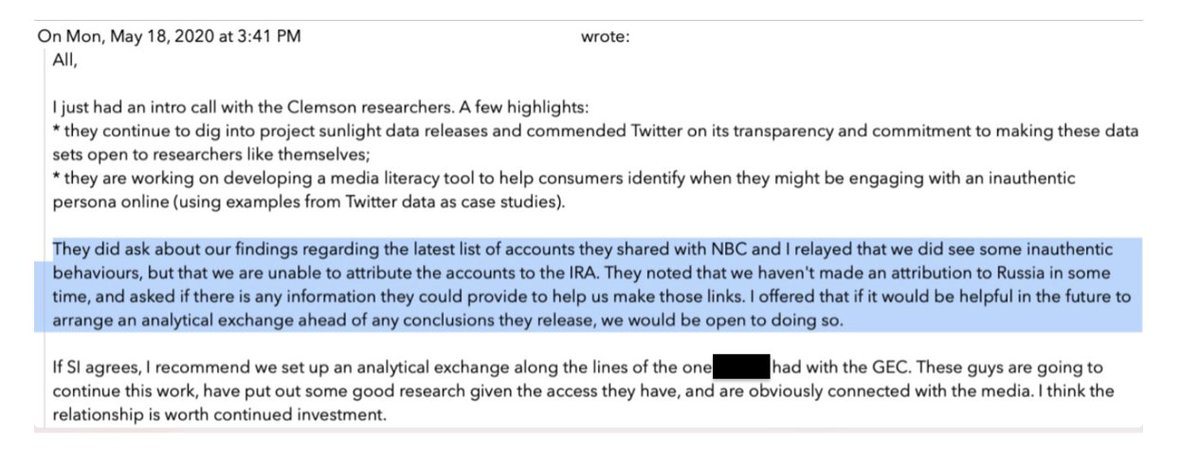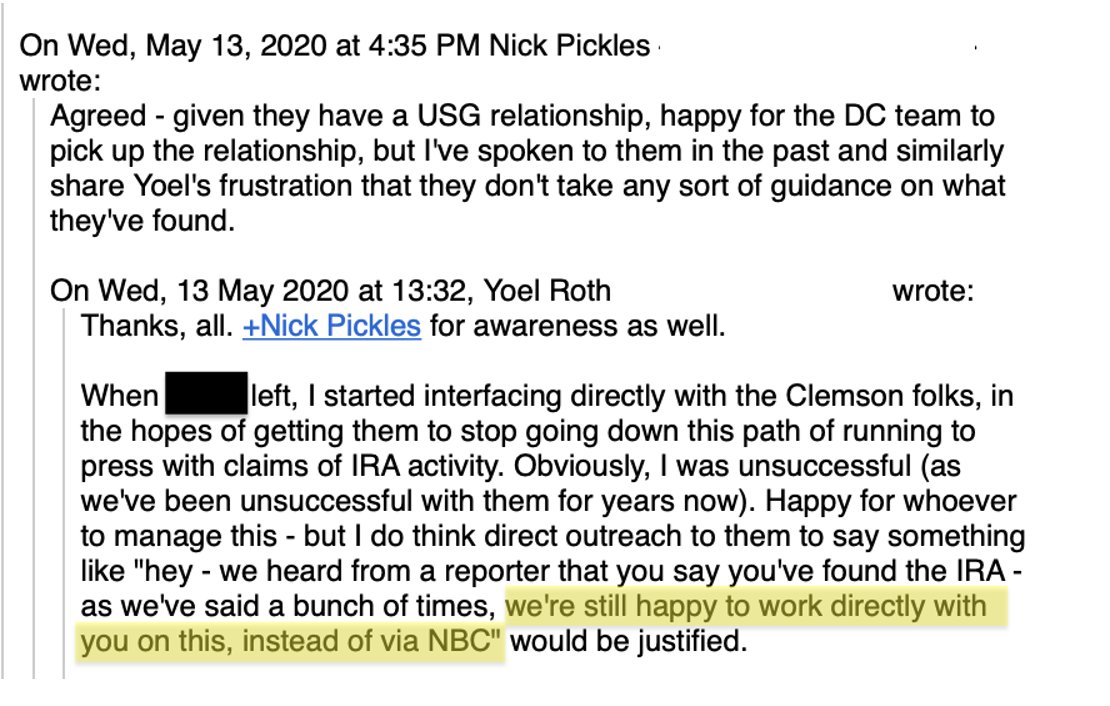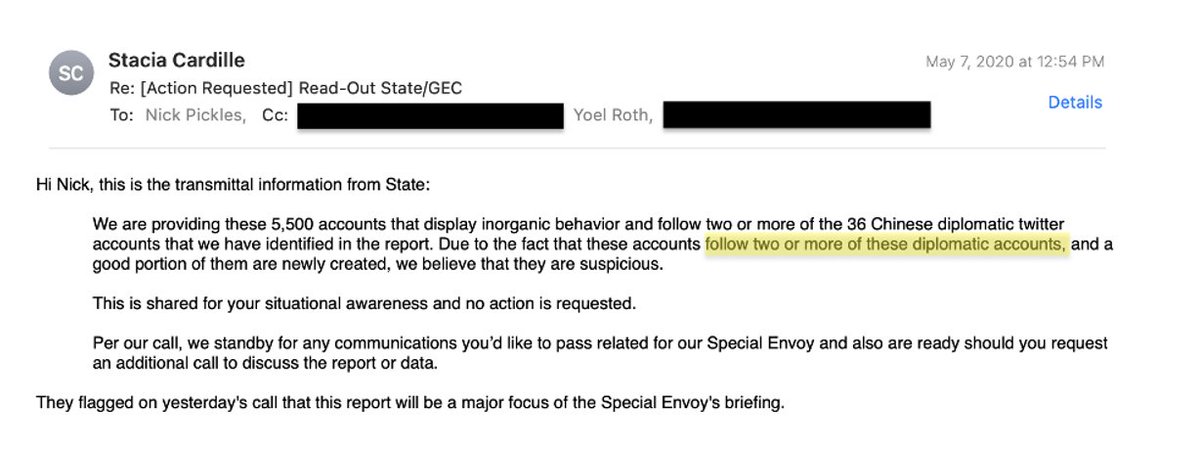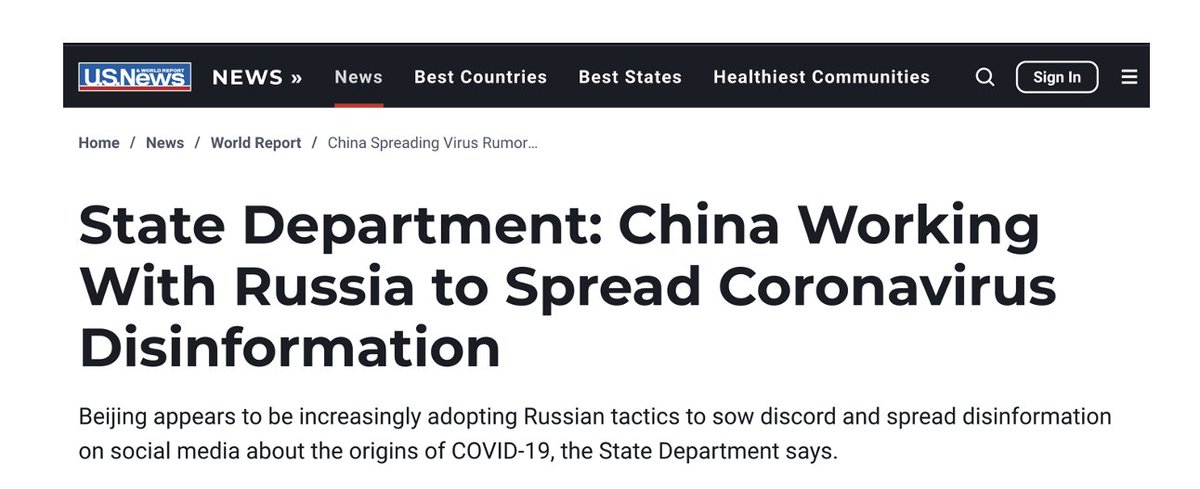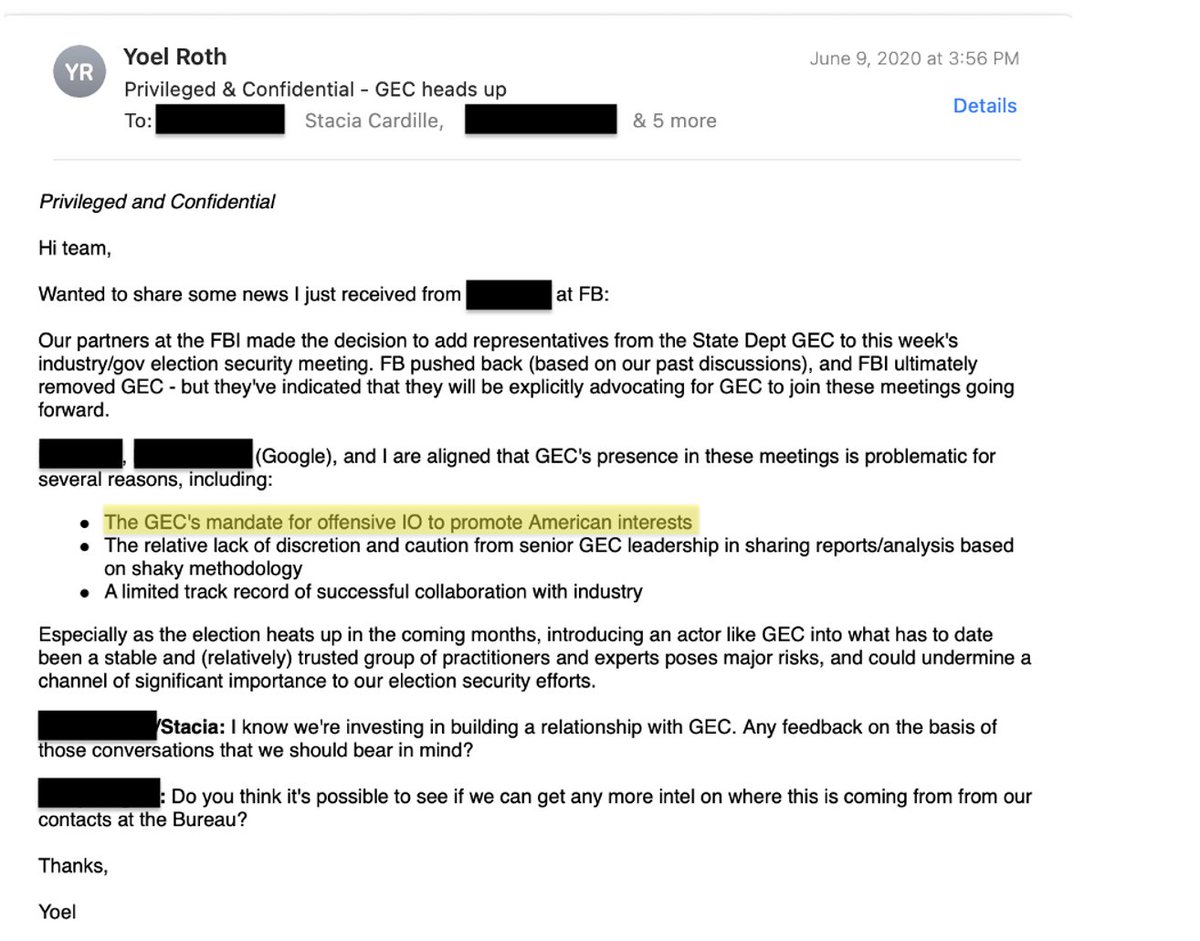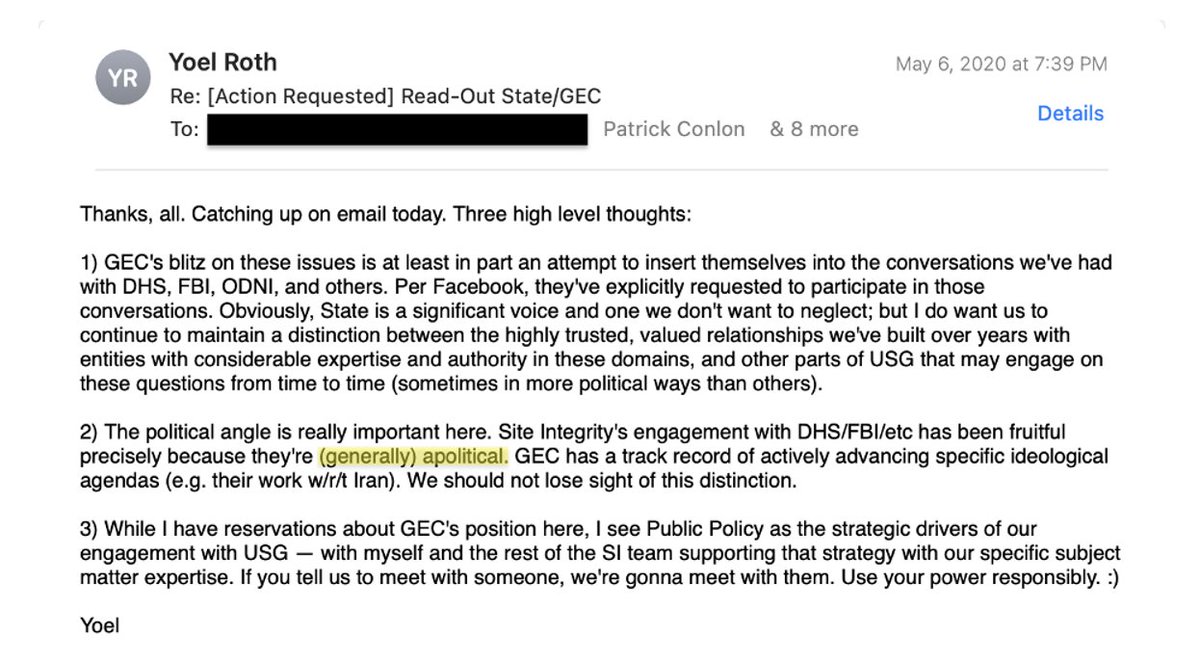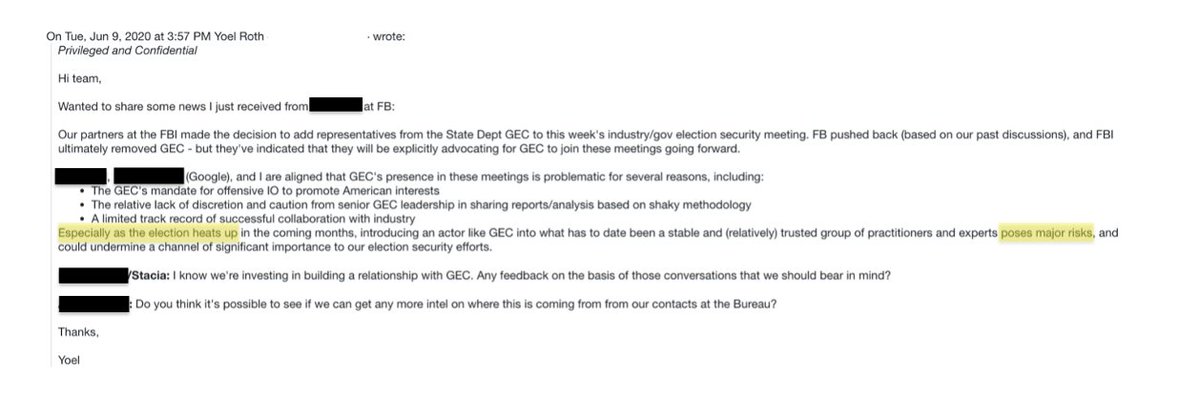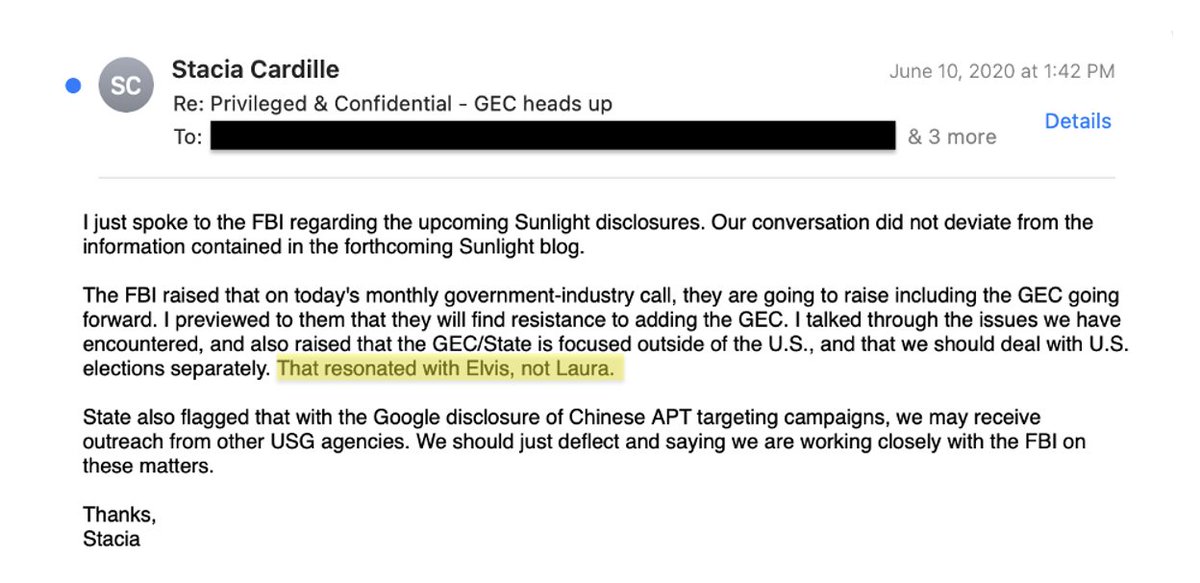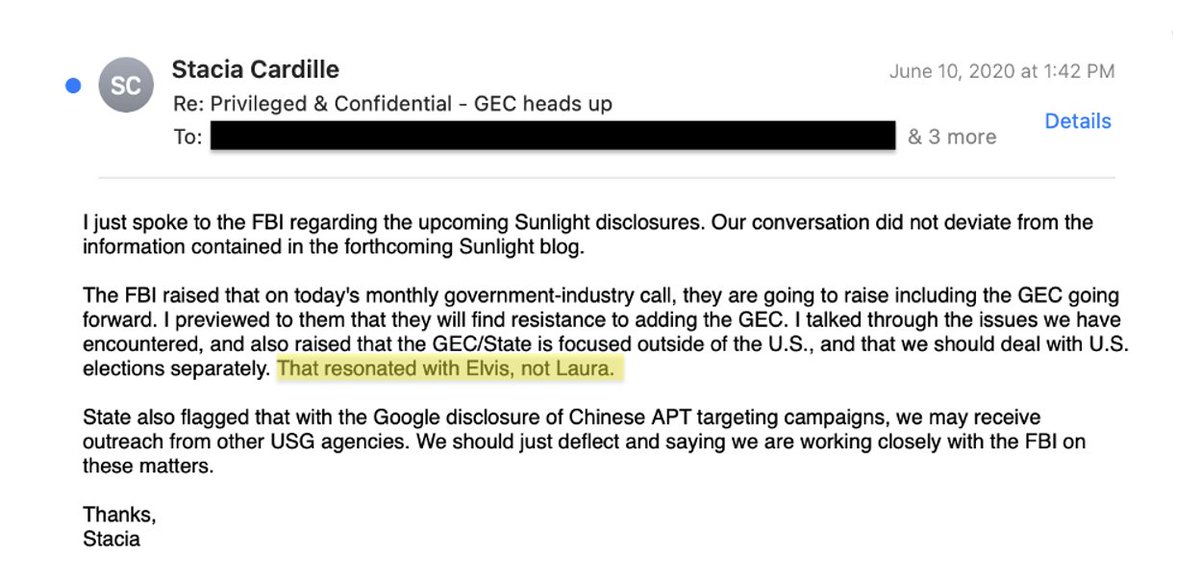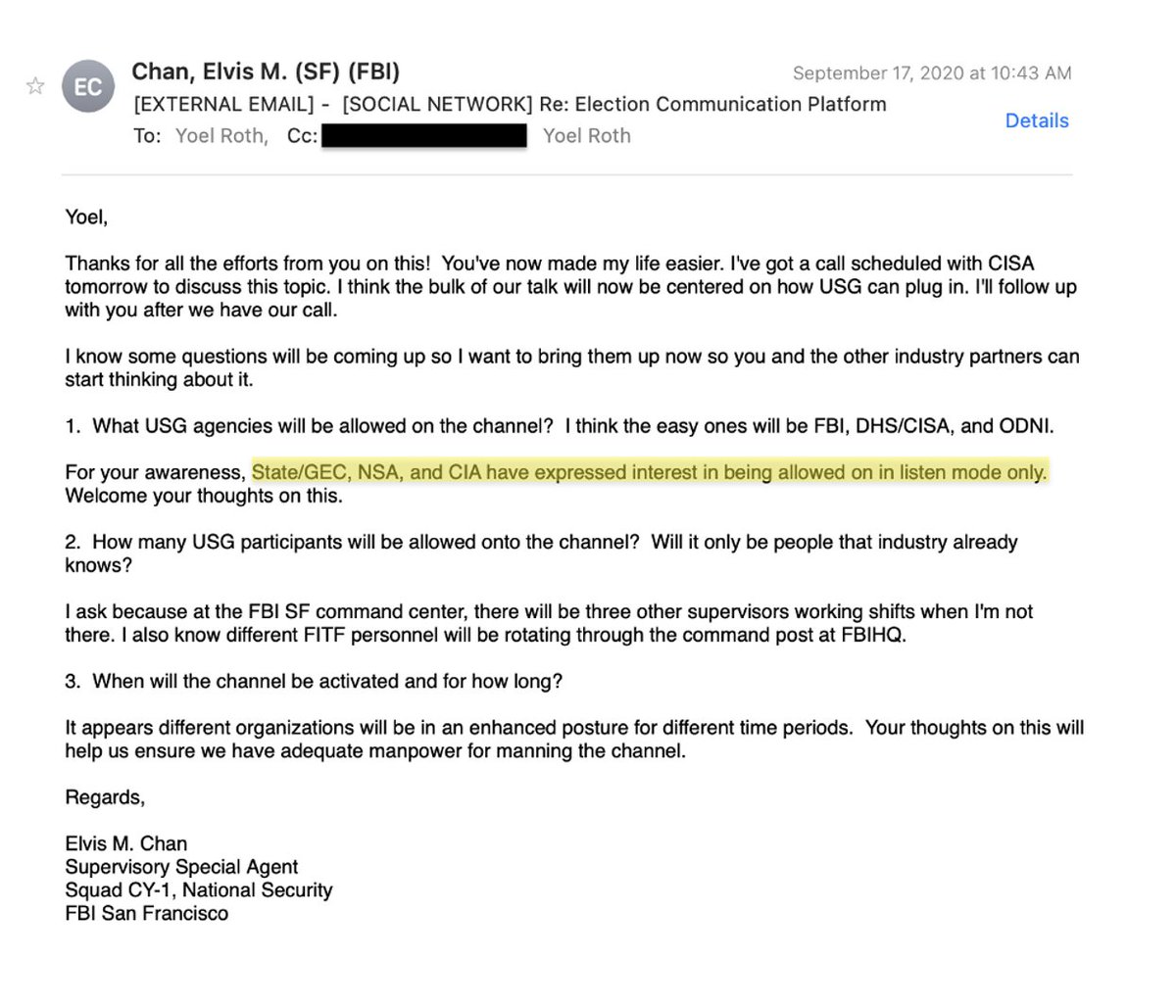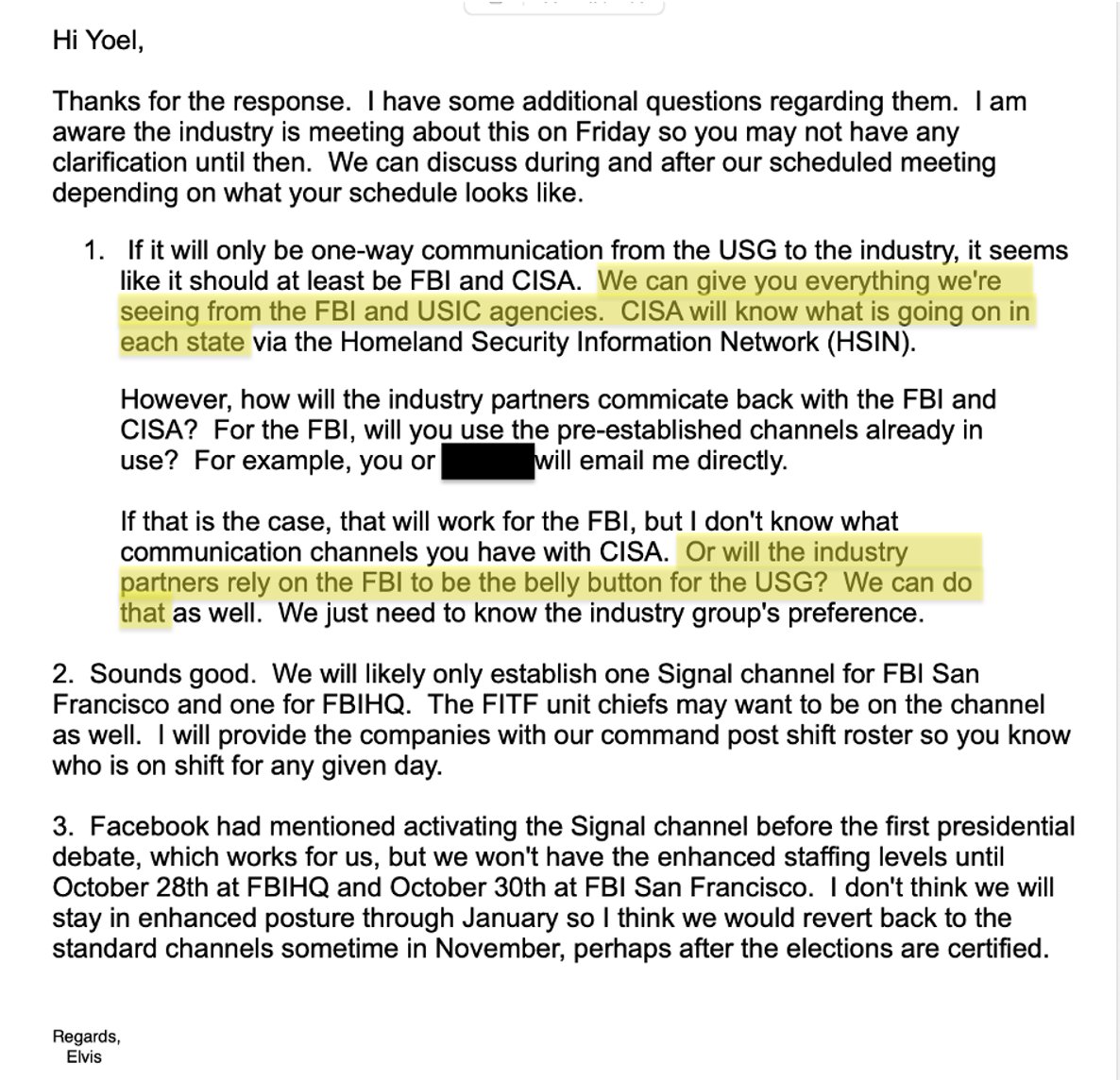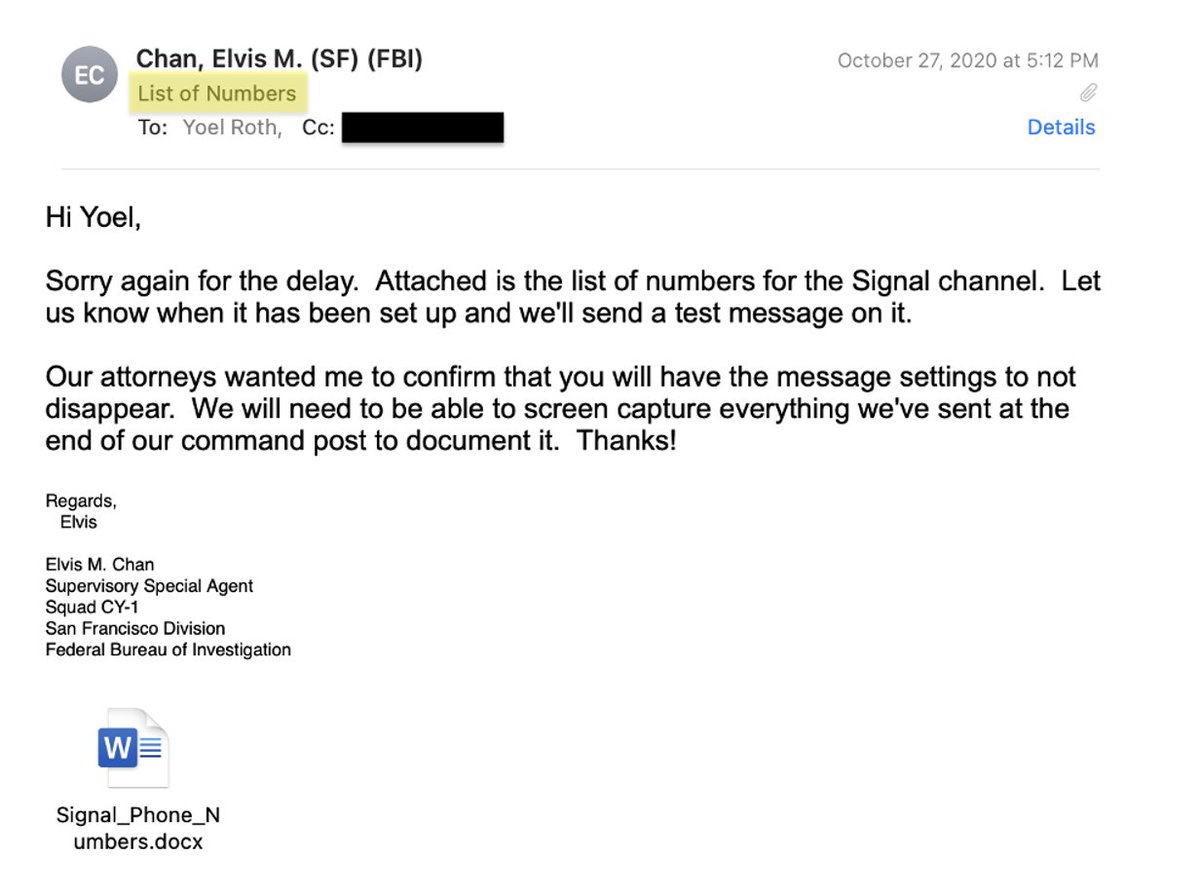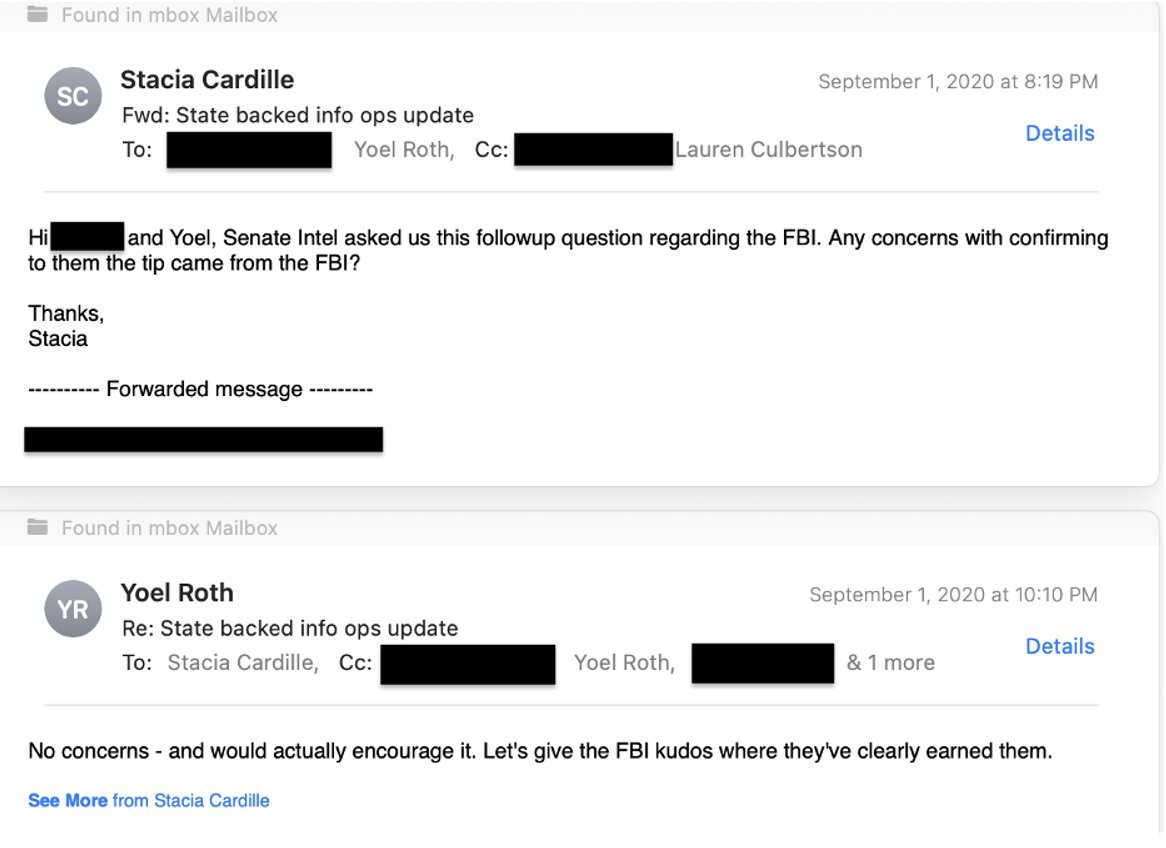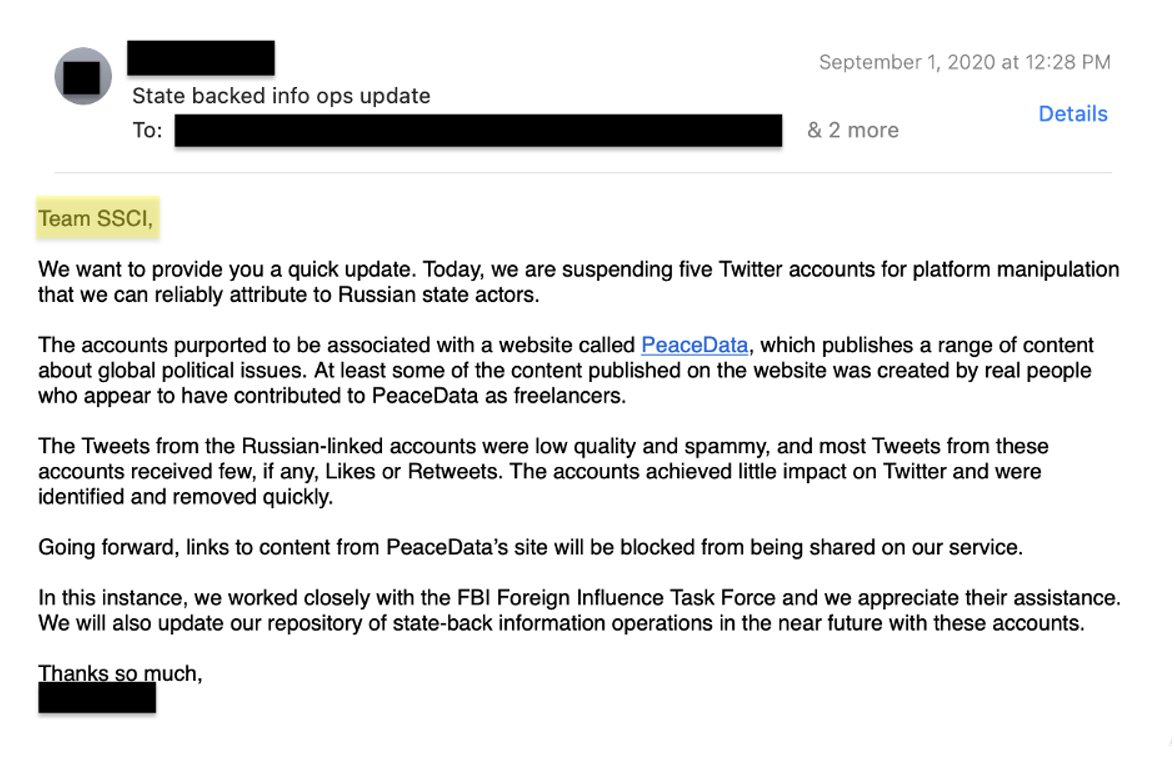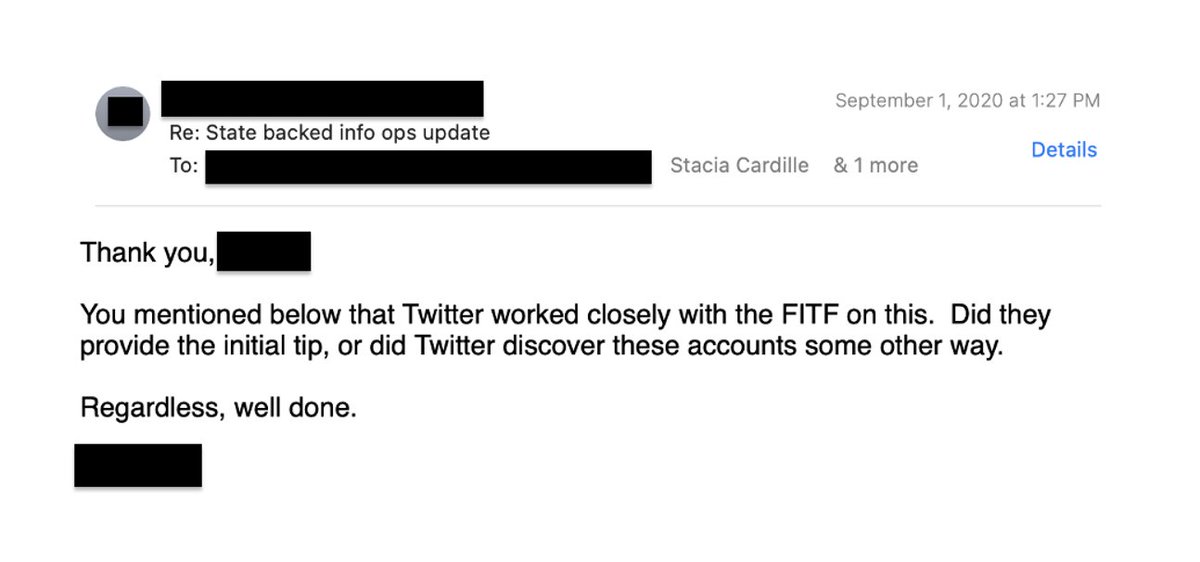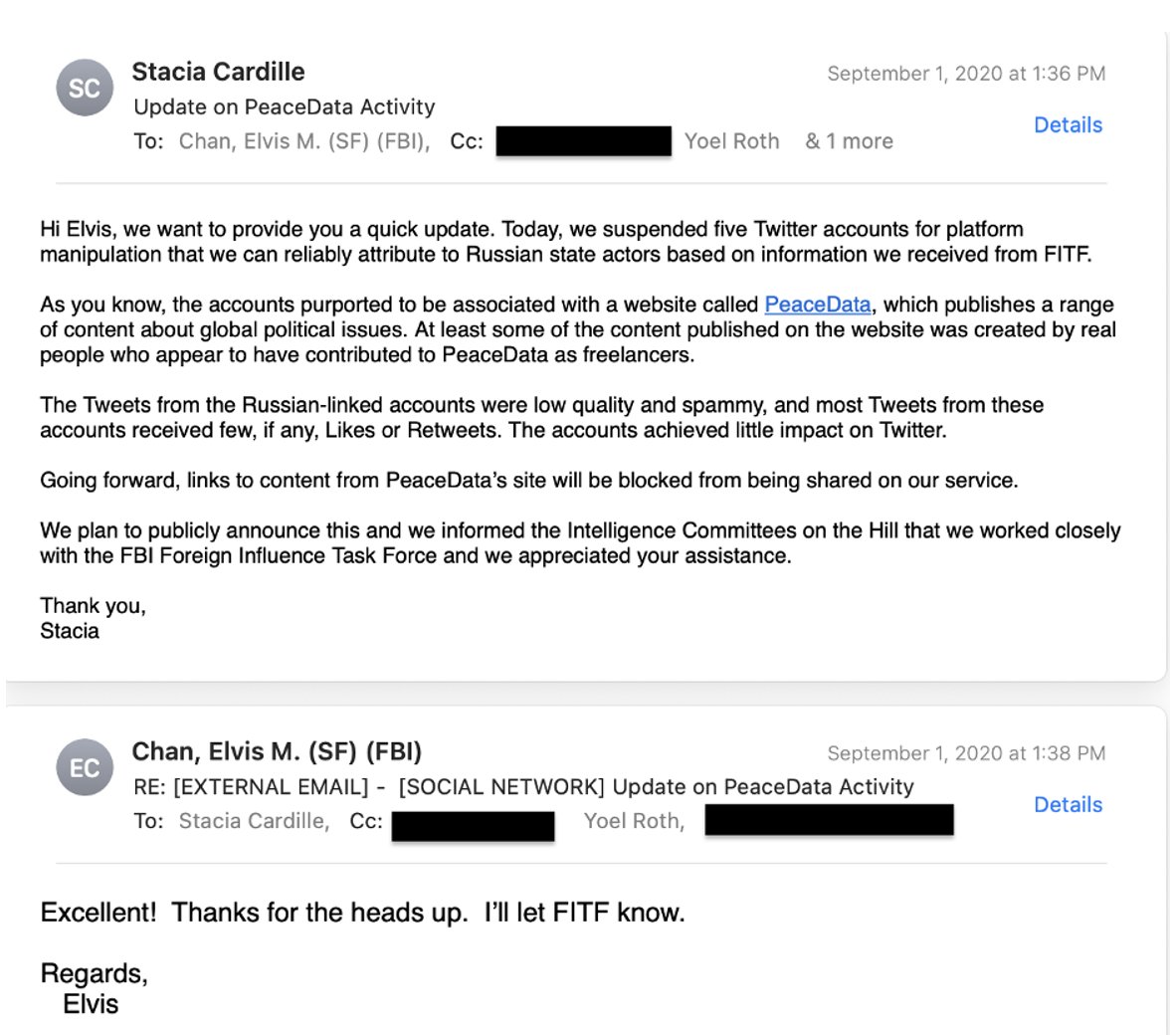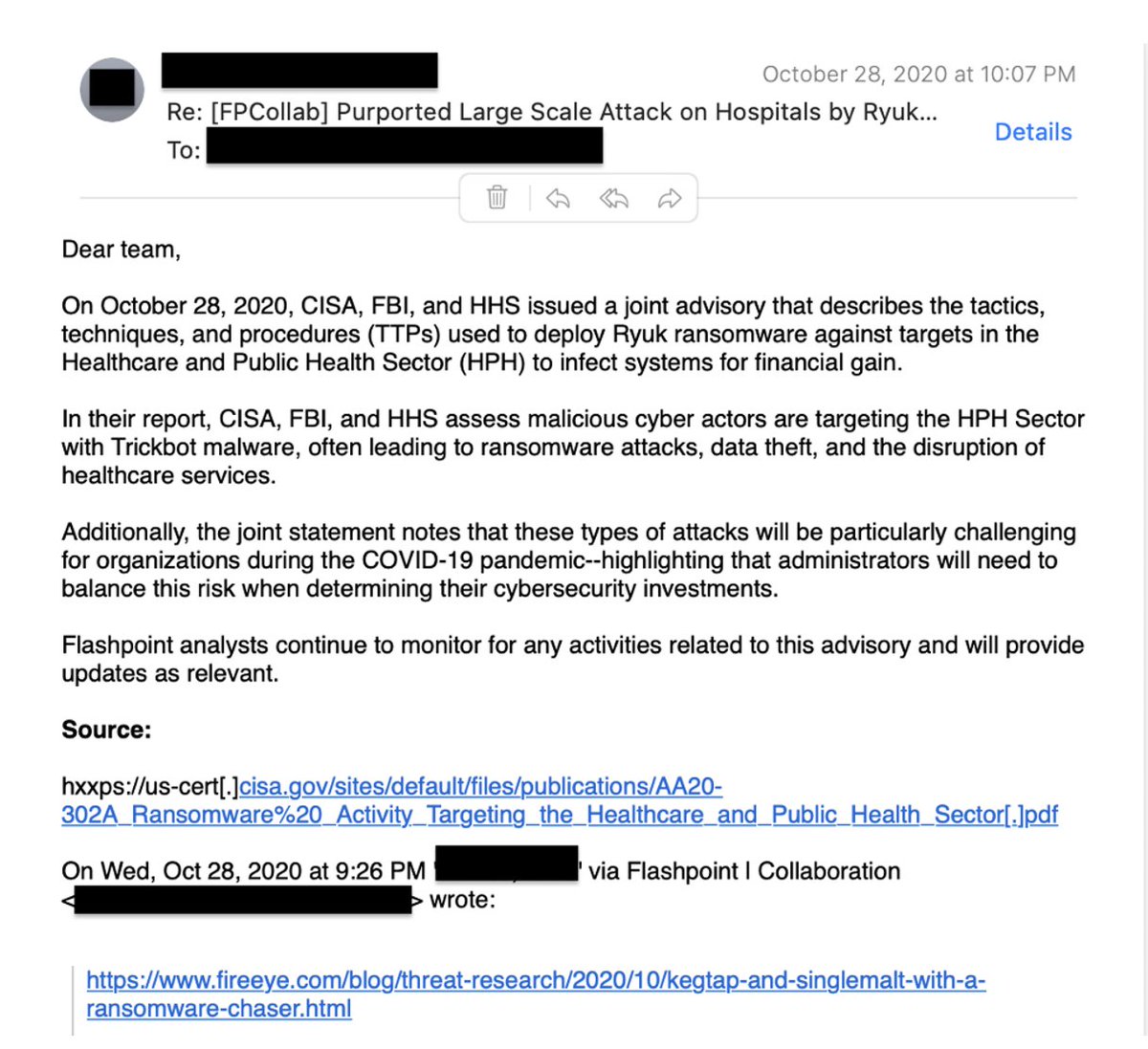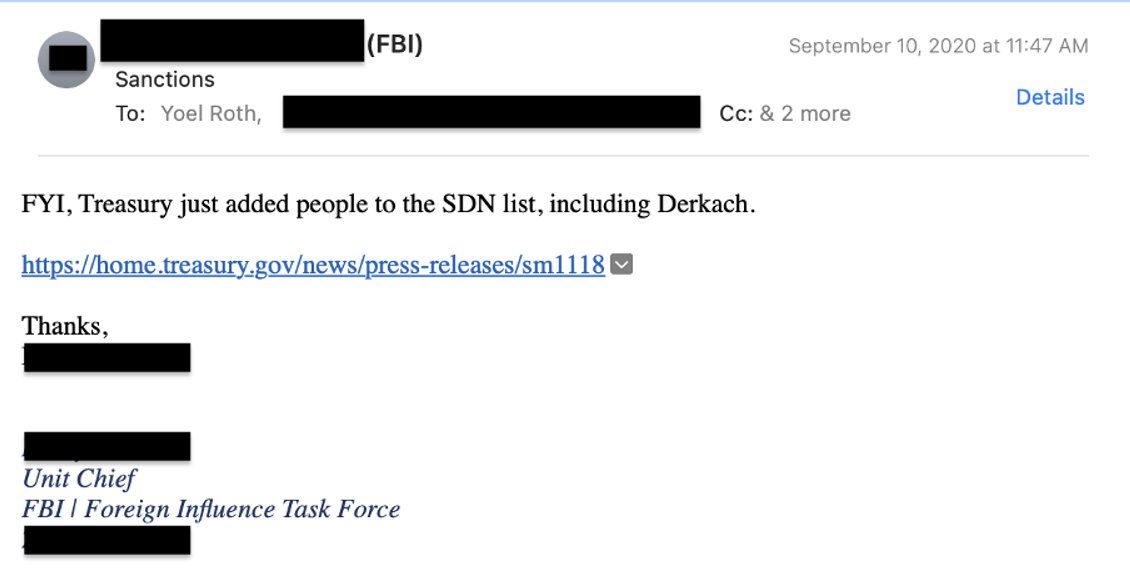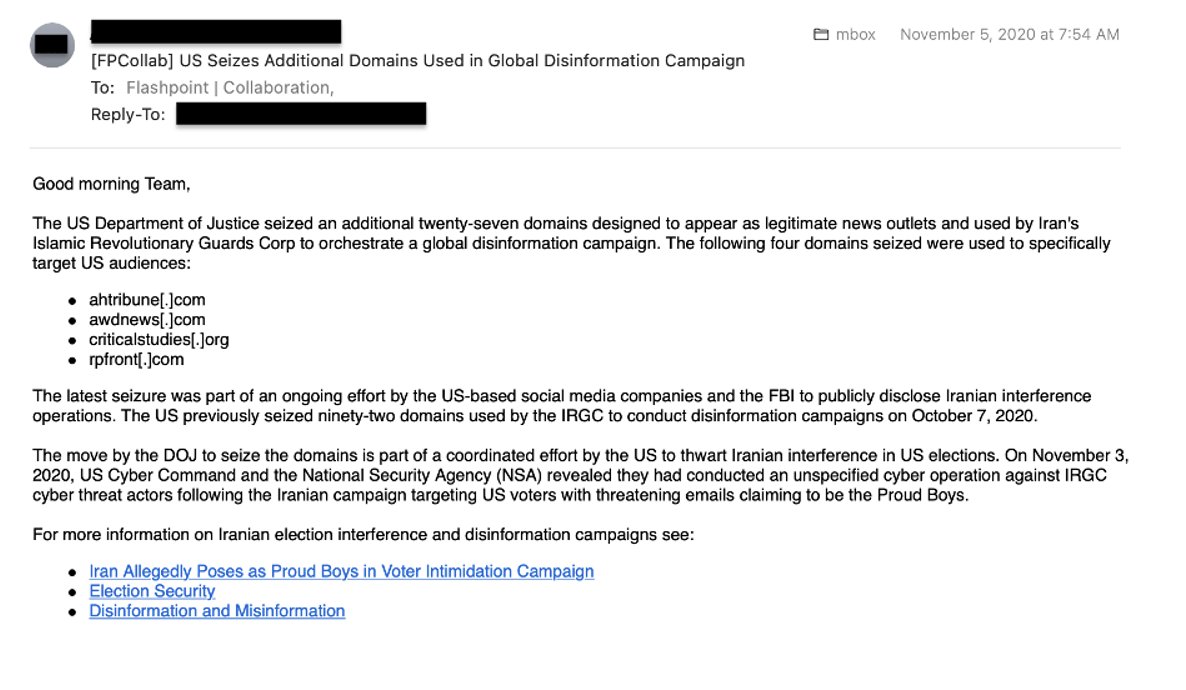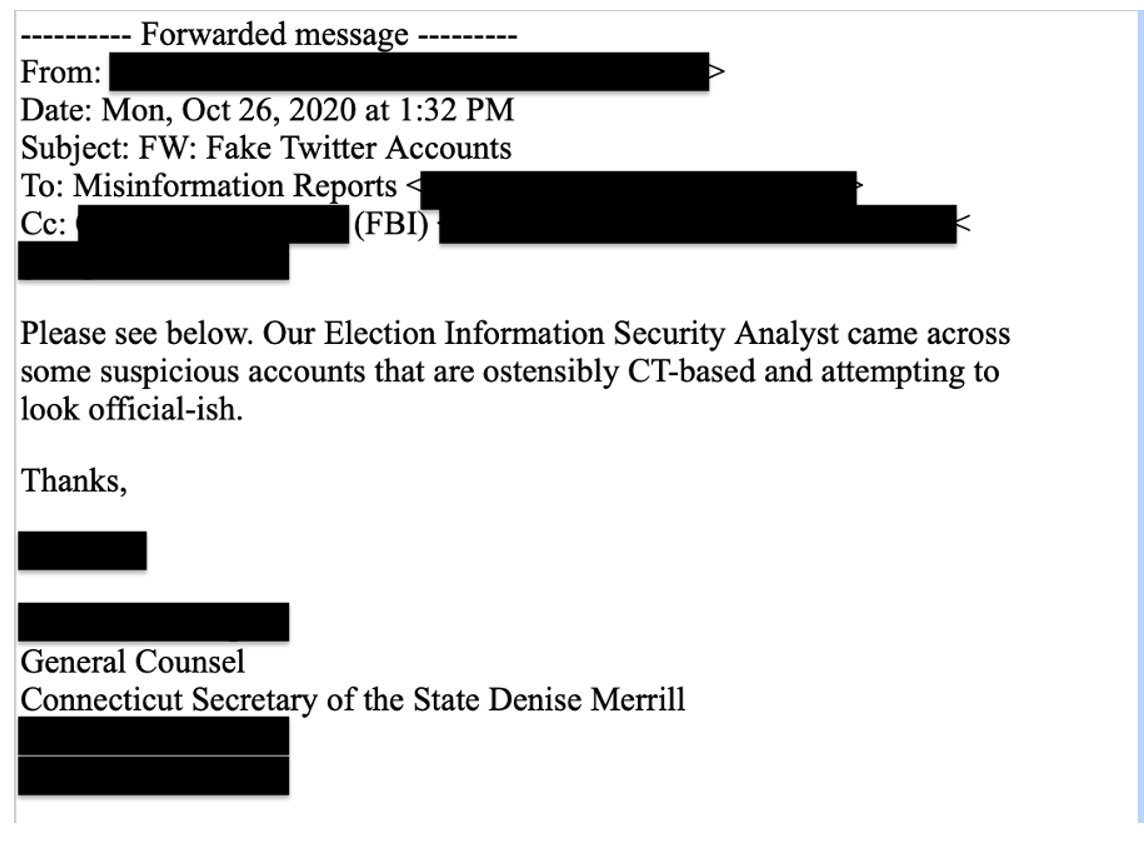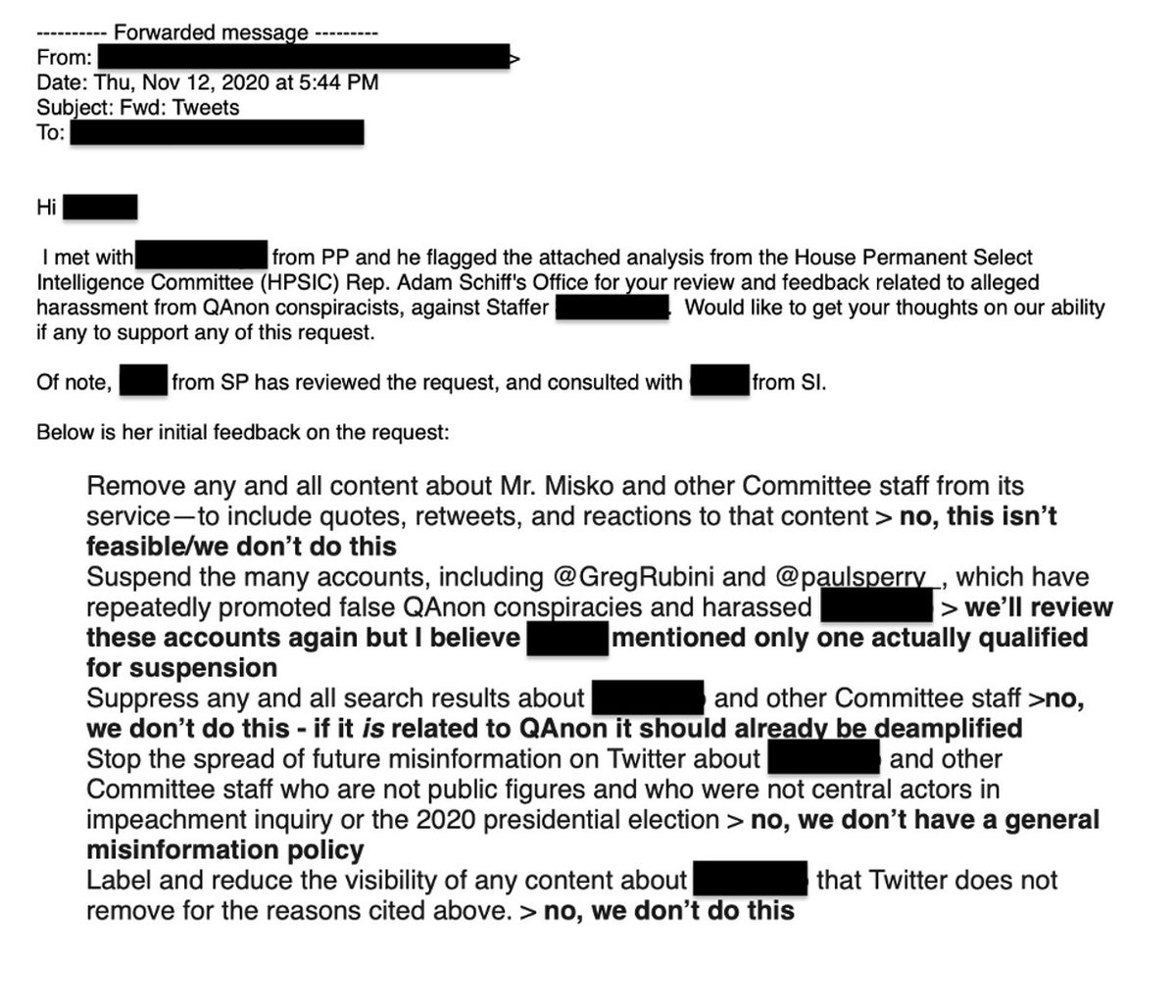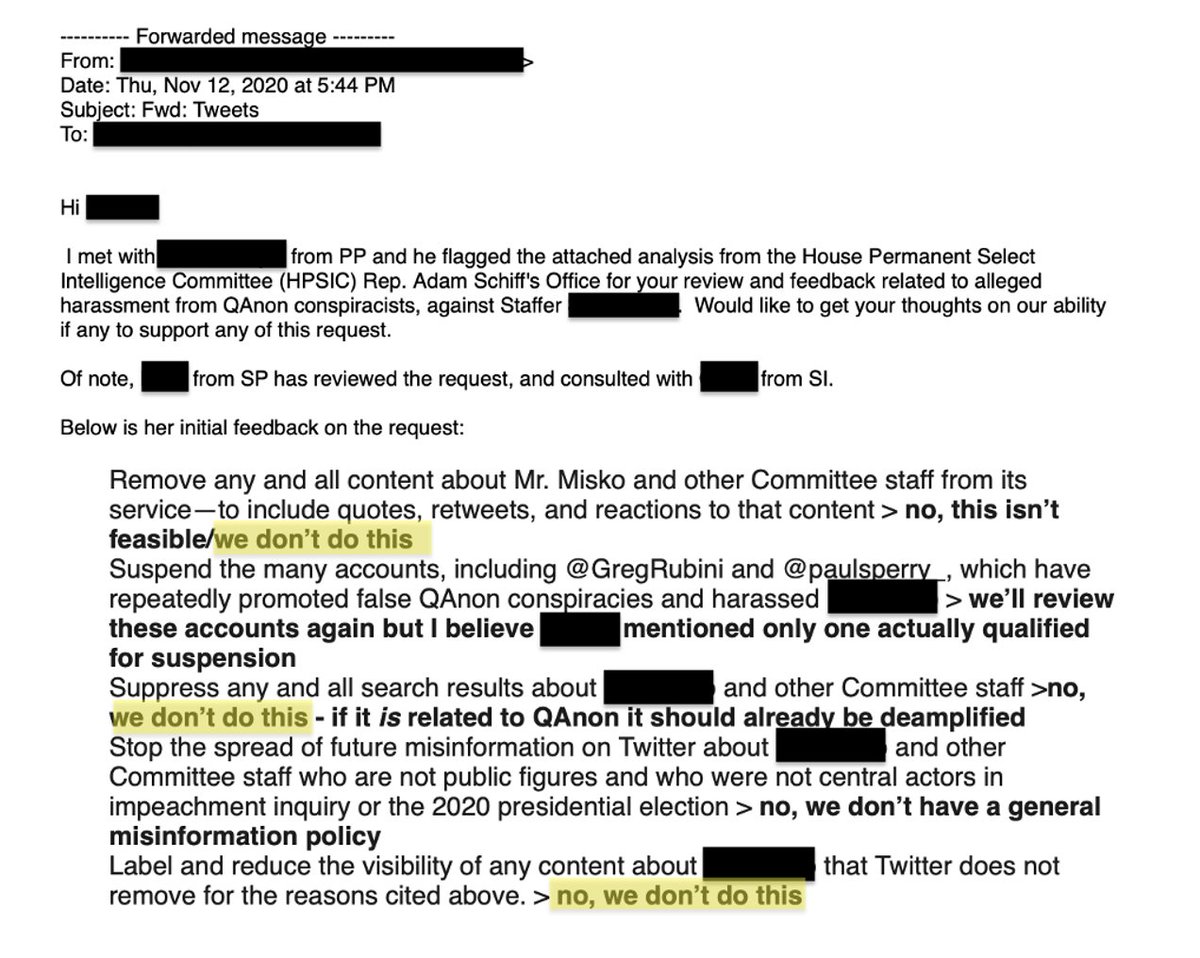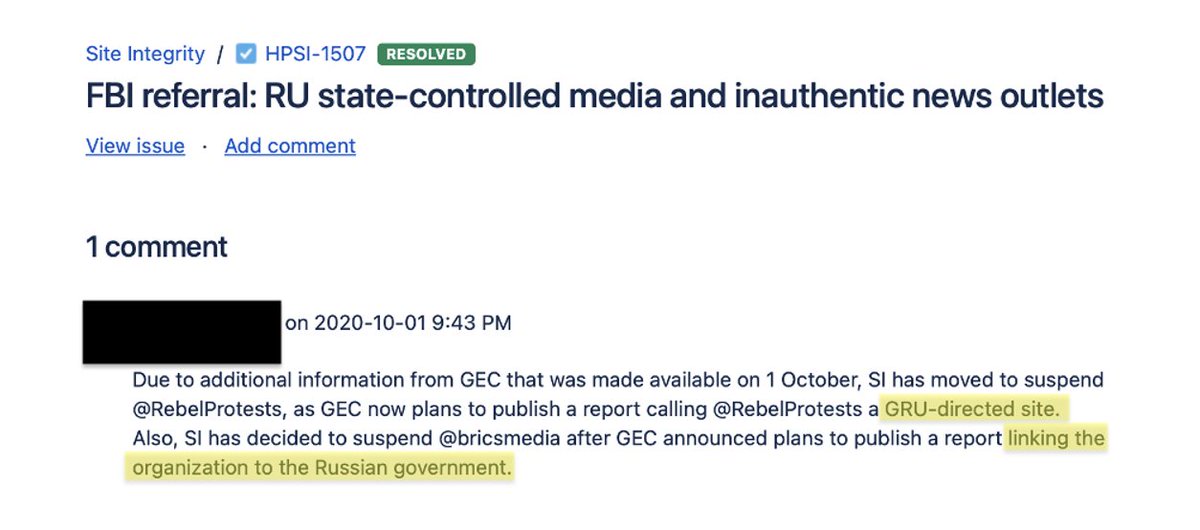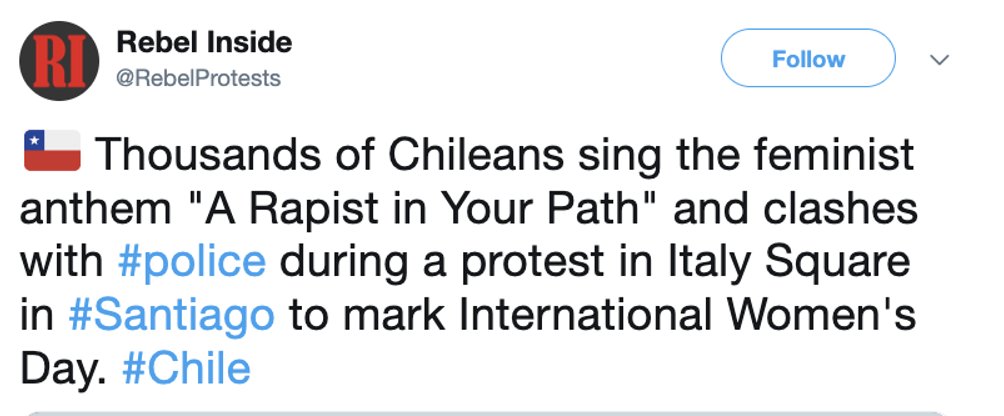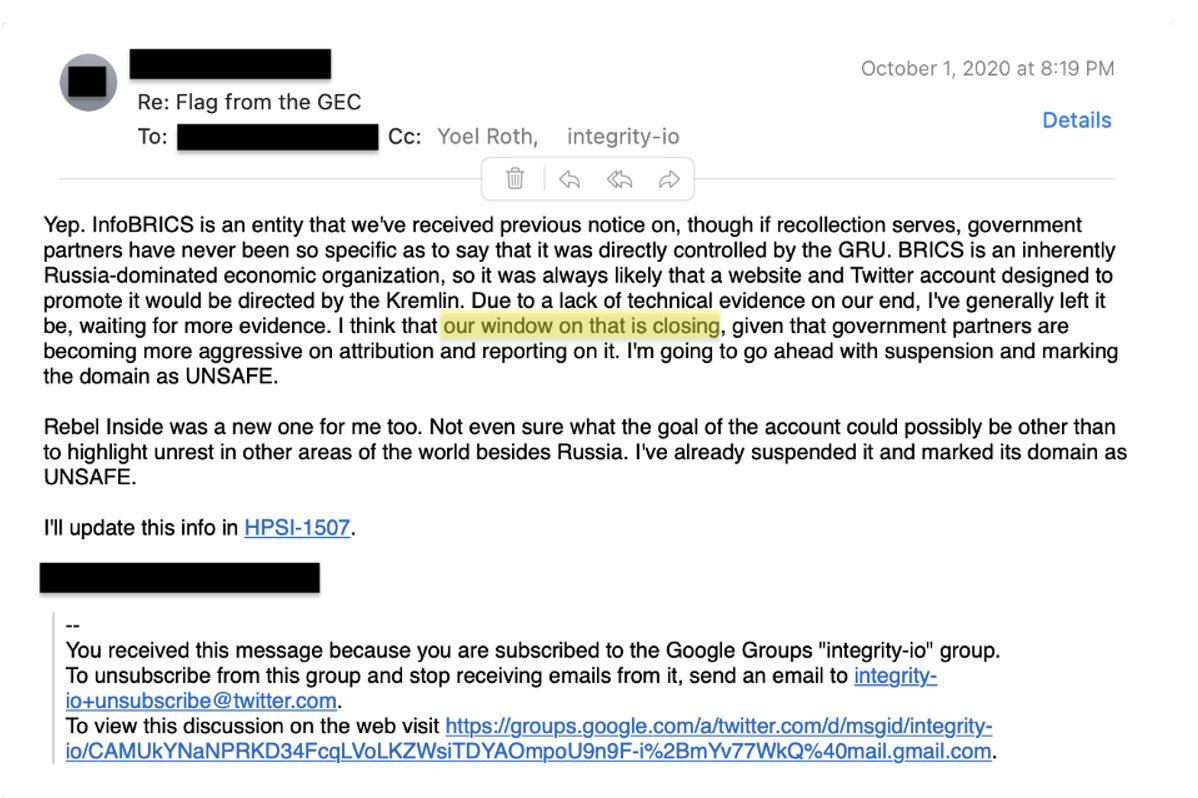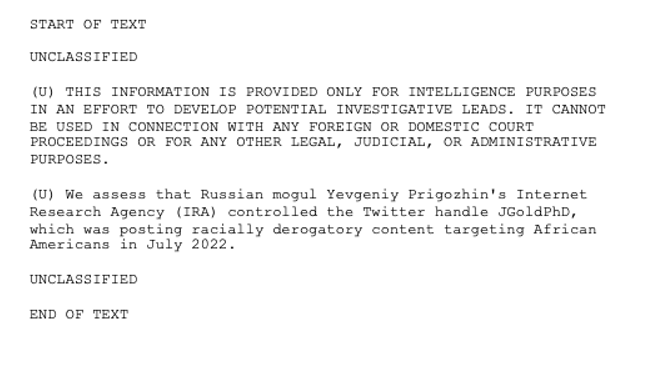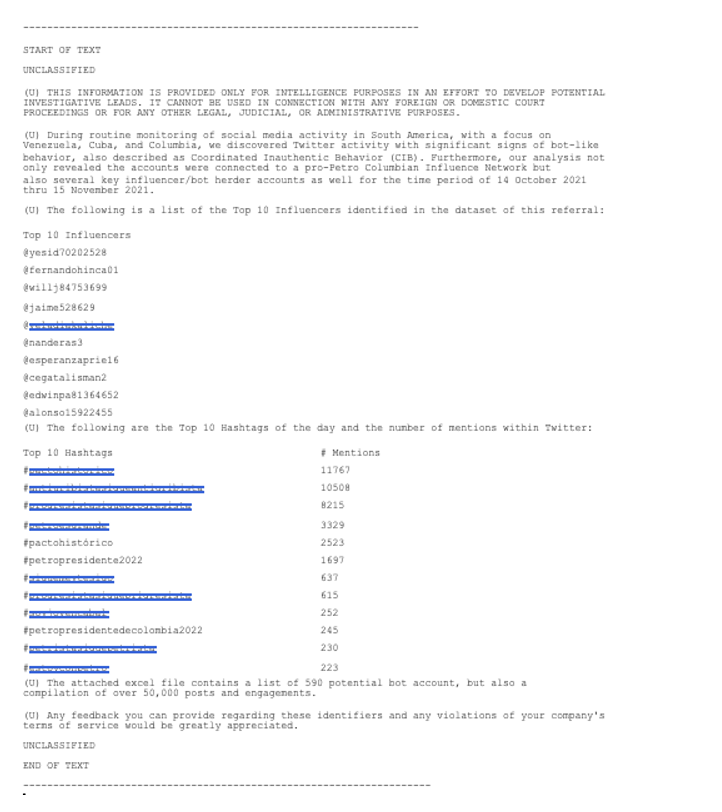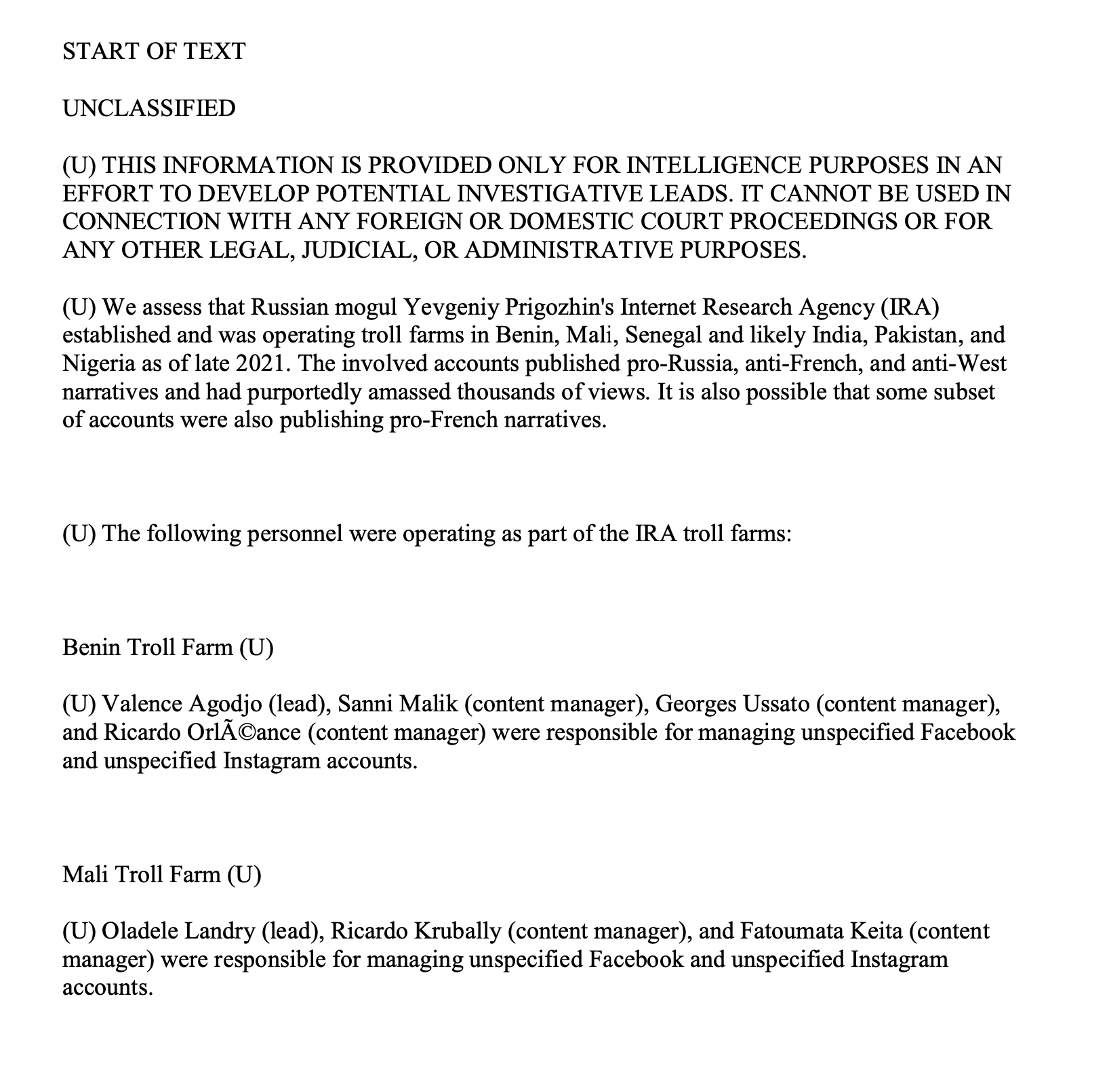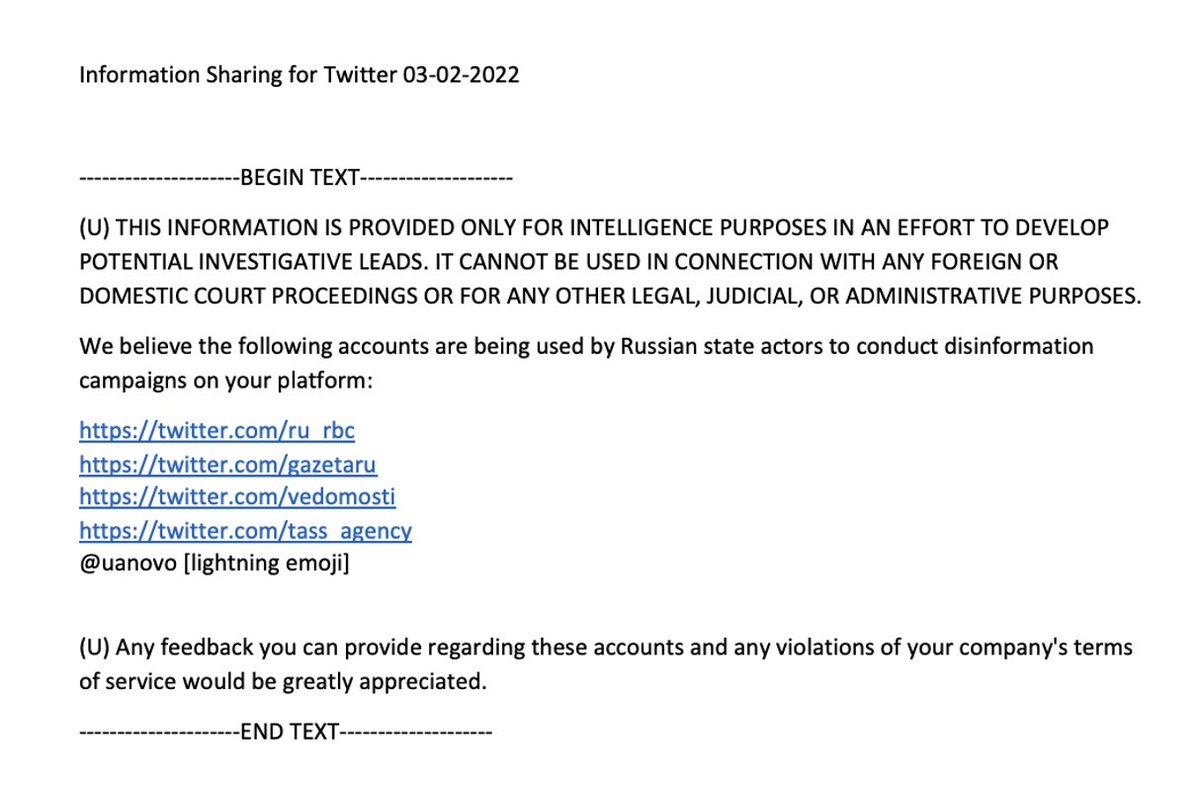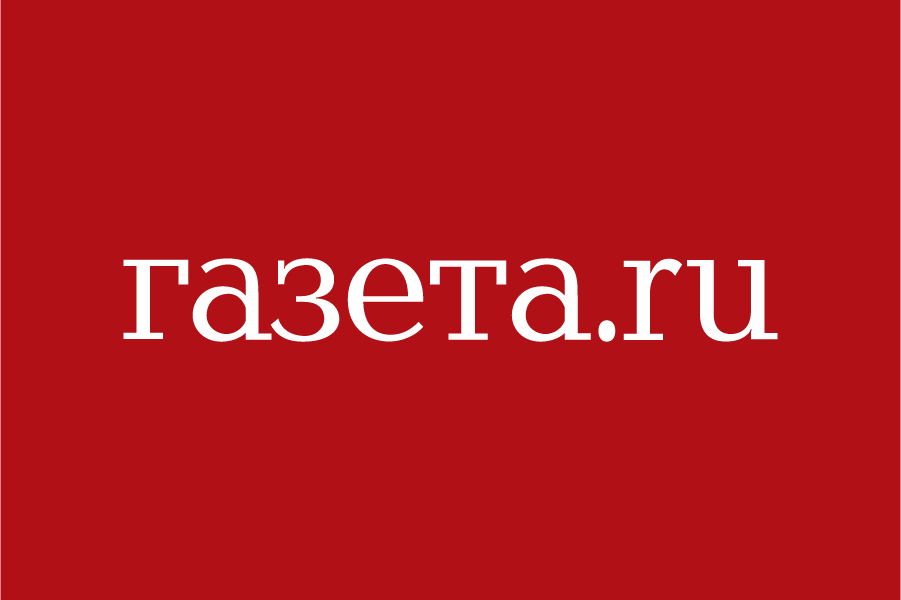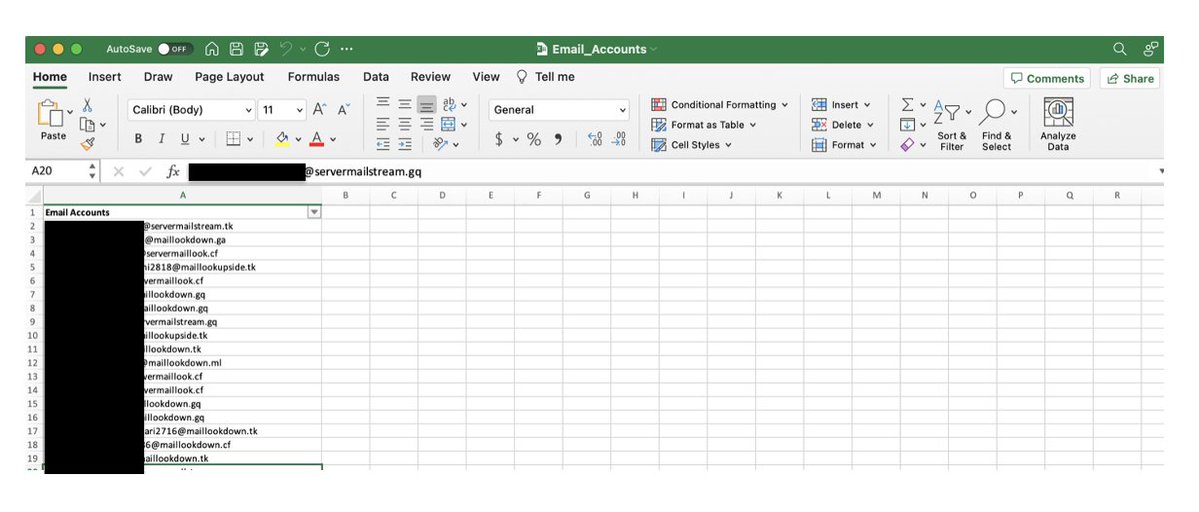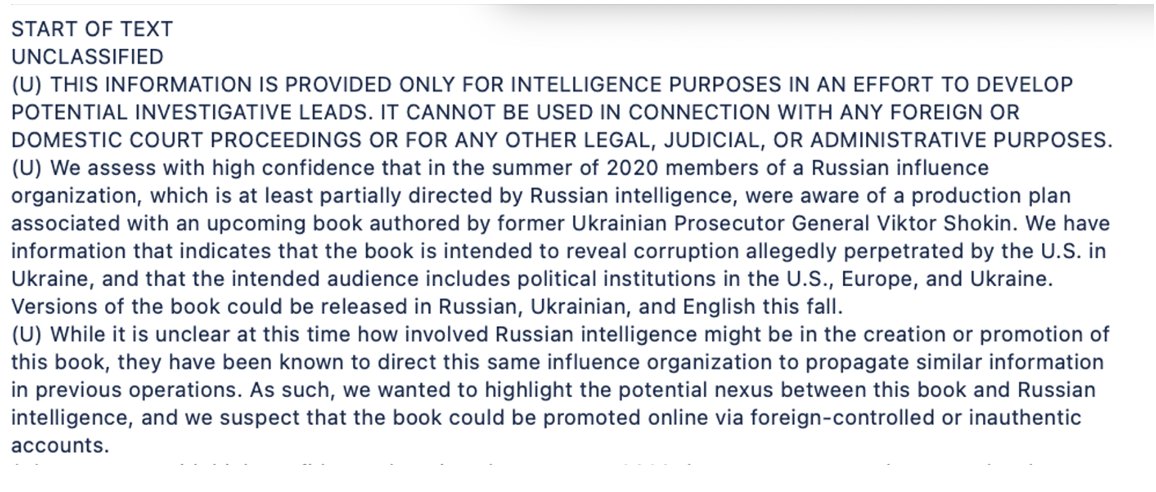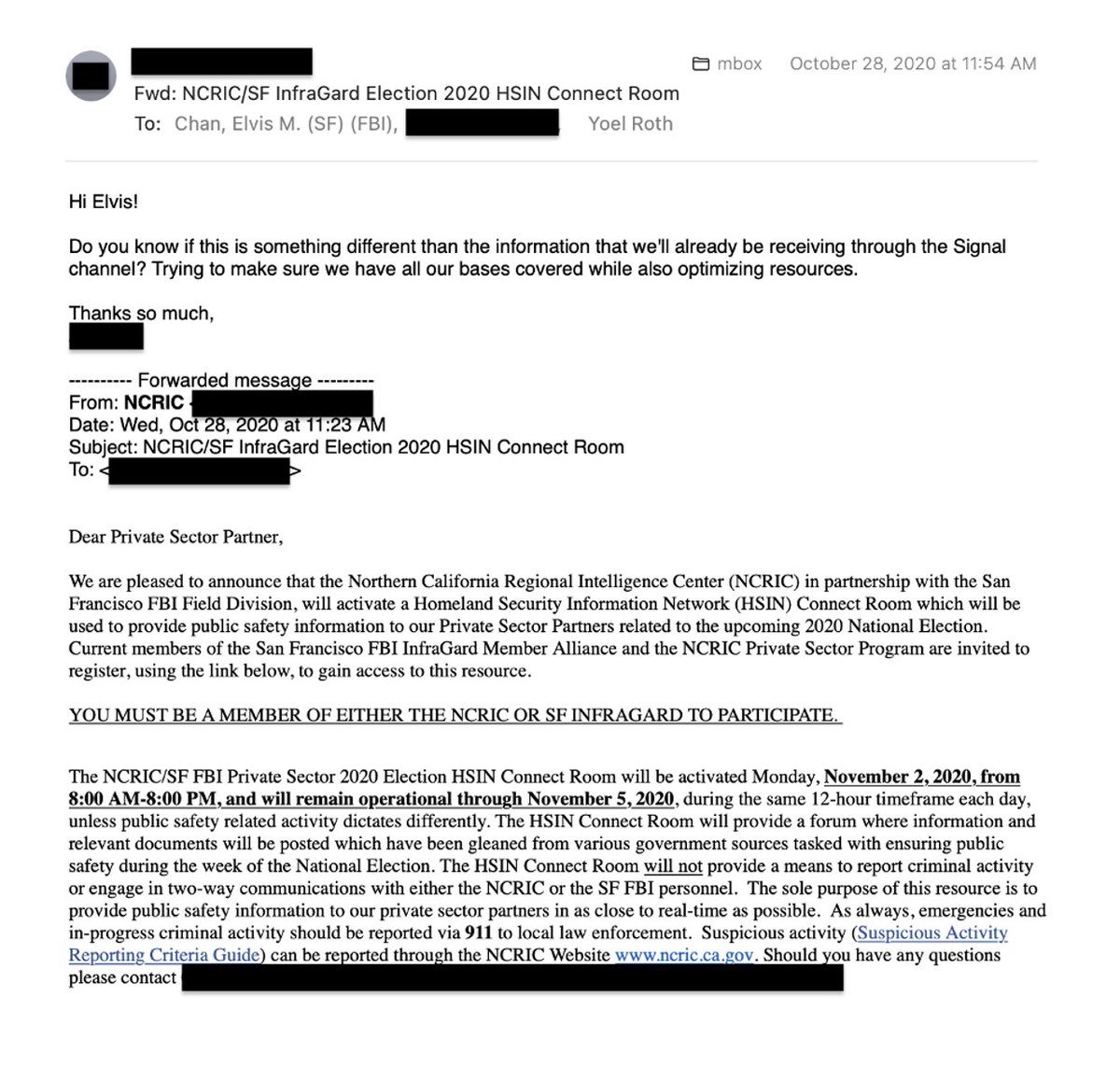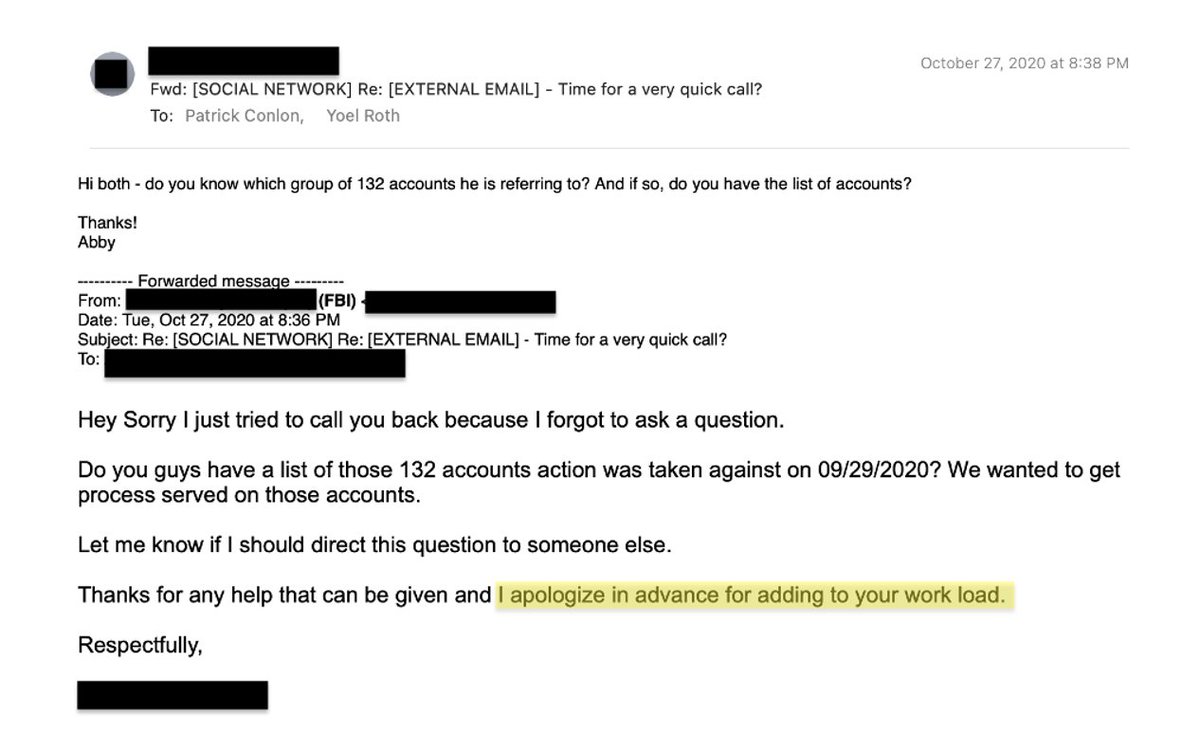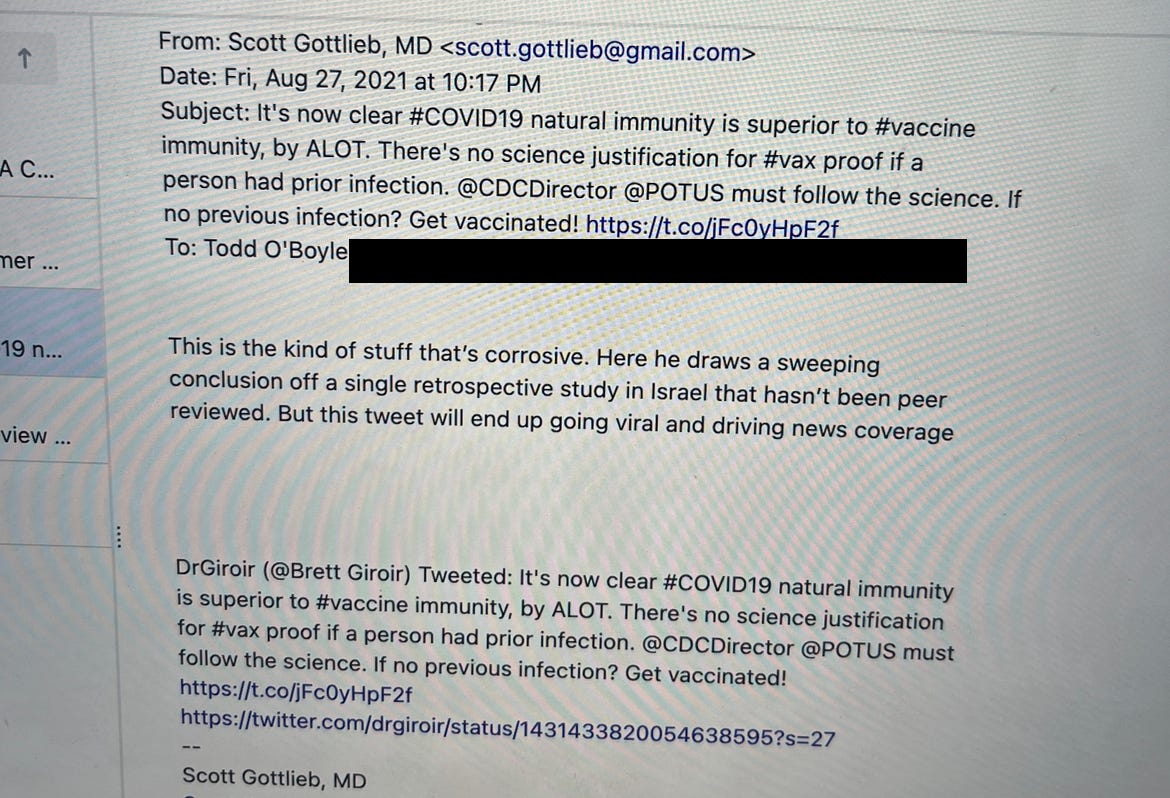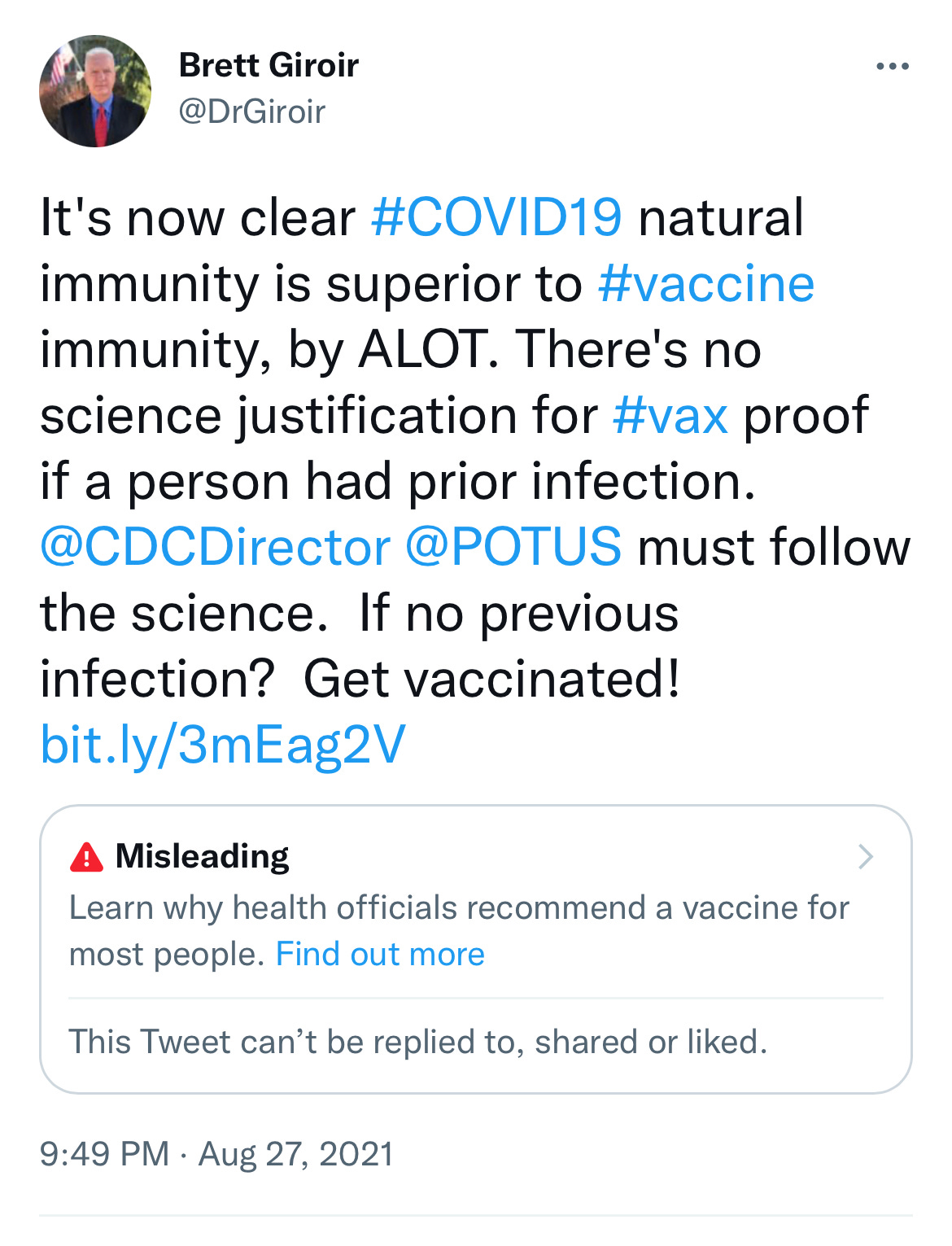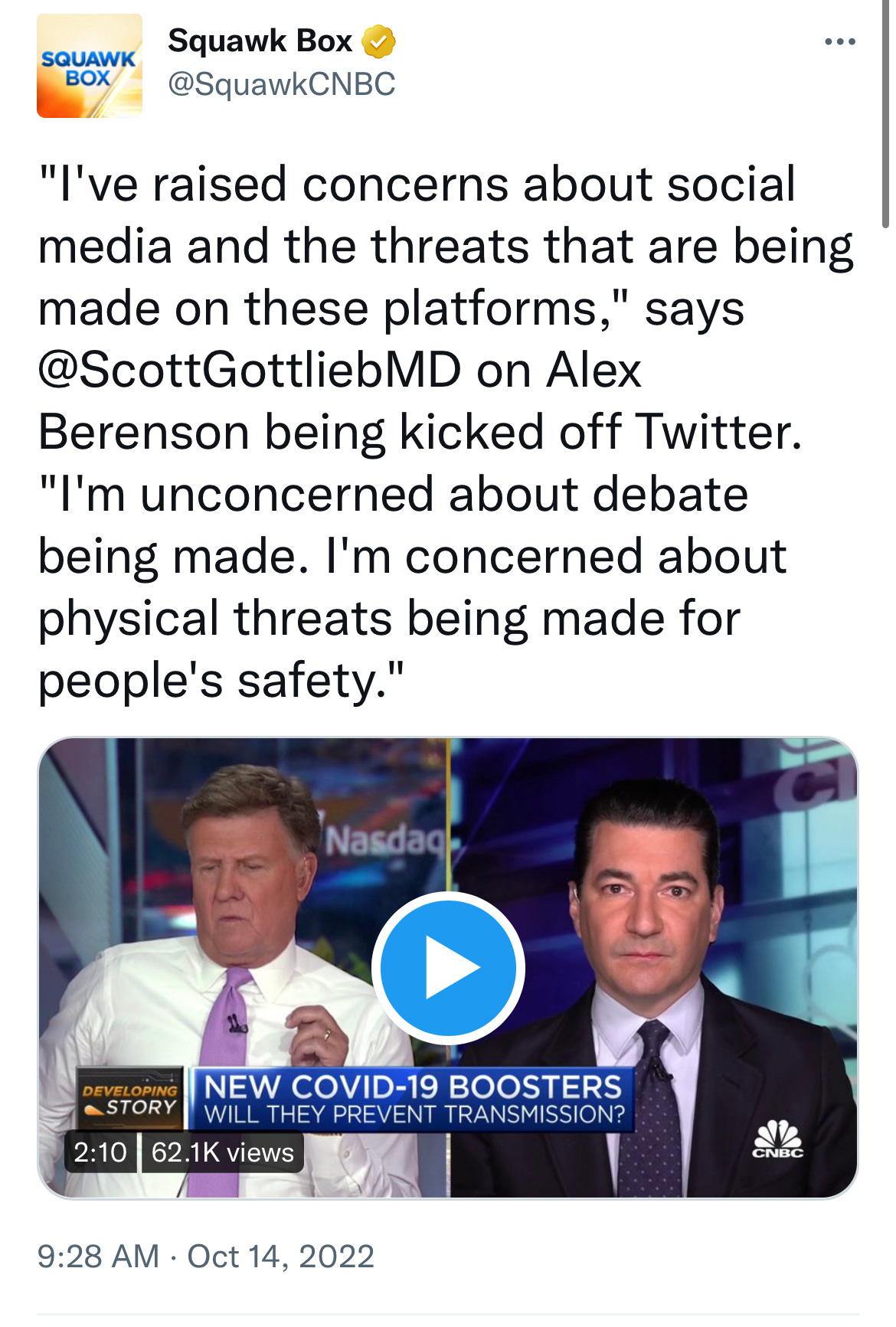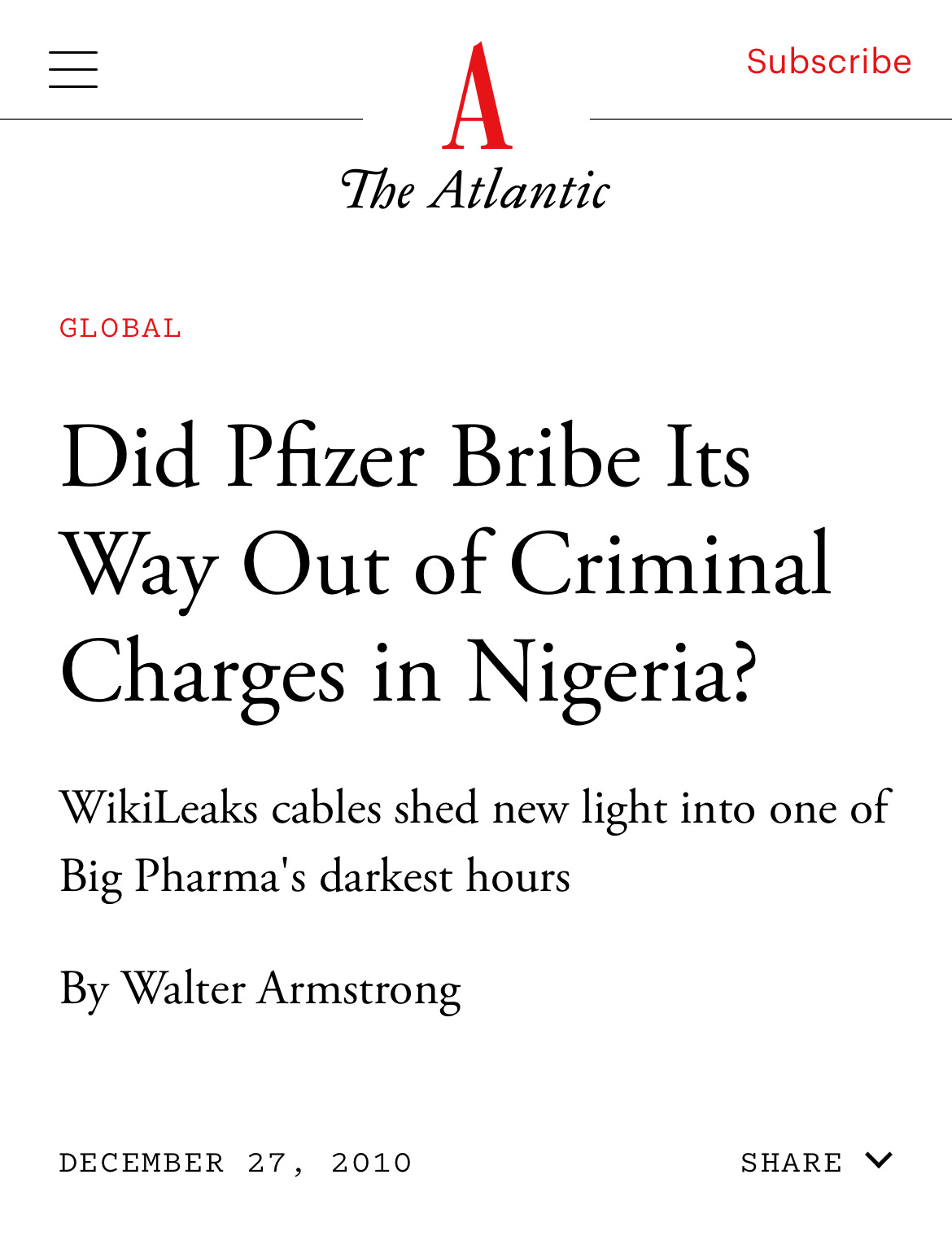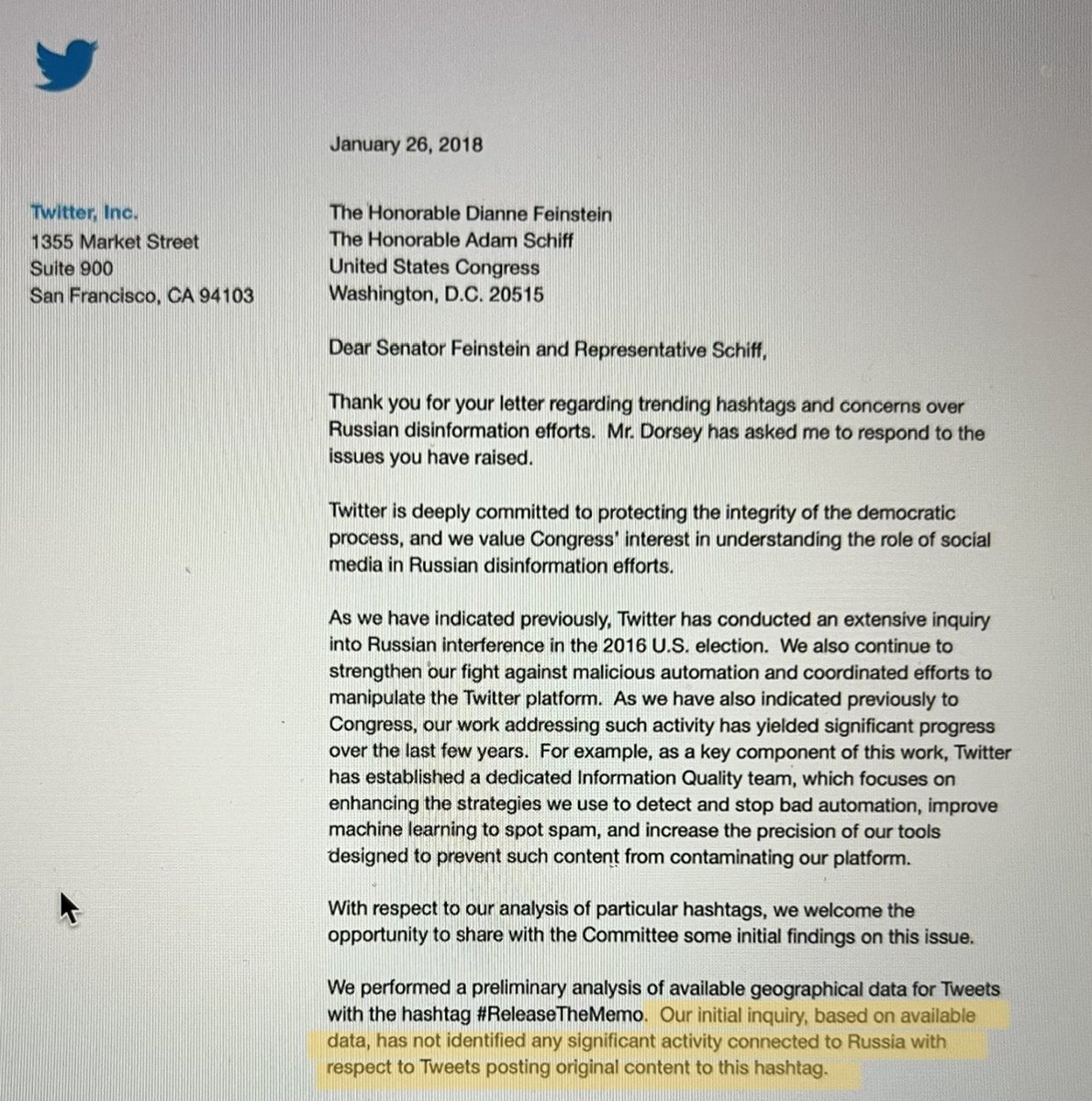- Joined
- Dec 29, 2012
- Messages
- 18,449
20.“Were Twitter a contractor for the FSB… they could not have built a more effective disinformation platform,” Johns Hopkins Professor (and Intel Committee “expert”) Thomas Rid told Politico.

21.As congress threatened costly legislation, and Twitter began was subject to more bad press fueled by the committees, the company changed its tune about the smallness of its Russia problem.
22.“Hi guys.. Just passing along for awareness the writeup here from the WashPost today on potential legislation (or new FEC regulations) that may affect our political advertising,” wrote Crowell.
22.“Hi guys.. Just passing along for awareness the writeup here from the WashPost today on potential legislation (or new FEC regulations) that may affect our political advertising,” wrote Crowell.
23. In Washington weeks after the first briefing, Twitter leaders were told by Senate staff that “Sen Warner feels like tech industry was in denial for months.” Added an Intel staffer: “Big interest in Politico article about deleted accounts."

24.Twitter “pledged to work with them on their desire to legislate”:
25.“Knowing that our ads policy and product changes are an effort to anticipate congressional oversight, I wanted to share some relevant highlights of the legislation Senators Warner, Klobuchar and McCain will be introducing,” wrote Policy Director Carlos Monje soon after.
26.“THE COMMITTEES APPEAR TO HAVE LEAKED” Even as Twitter prepared to change its ads policy and remove RT and Sputnik to placate Washington, congress turned the heat up more, apparently leaking the larger, base list of 2700 accounts.
27.Reporters from all over started to call Twitter about Russia links. Buzzfeed, working with the University of Sheffield, claimed to find a “new network” on Twitter that had “close connections to… Russian-linked bot accounts.”
28.“IT WILL ONLY EMBOLDEN THEM.” Twitter internally did not want to endorse the Buzzfeed/Sheffield findings:


29. “SENATE INTEL COMMITTEE IS ASKING… POSSIBLE TO WHIP SOMETHING TOGETHER?” Still, when the Buzzfeed piece came out, the Senate asked for “a write up of what happened.” Twitter was soon apologizing for the same accounts they’d initially told the Senate were not a problem.
30.“REPORTERS NOW KNOW THIS IS A MODEL THAT WORKS”
This cycle – threatened legislation, wedded to scare headlines pushed by congressional/intel sources, followed by Twitter caving to moderation asks – would later be formalized in partnerships with federal law enforcement.
31.Twitter soon settled on its future posture.
In public, it removed content “at our sole discretion.”
Privately, they would “off-board” anything “identified by the U.S.. intelligence community as a state-sponsored entity conducting cyber-operations.”
32.Twitter let the “USIC” into its moderation process. It would not leave.
Wrote Crowell, in an email to the company’s leaders:
“We will not be reverting to the status quo.”

21.As congress threatened costly legislation, and Twitter began was subject to more bad press fueled by the committees, the company changed its tune about the smallness of its Russia problem.
22.“Hi guys.. Just passing along for awareness the writeup here from the WashPost today on potential legislation (or new FEC regulations) that may affect our political advertising,” wrote Crowell.

22.“Hi guys.. Just passing along for awareness the writeup here from the WashPost today on potential legislation (or new FEC regulations) that may affect our political advertising,” wrote Crowell.

23. In Washington weeks after the first briefing, Twitter leaders were told by Senate staff that “Sen Warner feels like tech industry was in denial for months.” Added an Intel staffer: “Big interest in Politico article about deleted accounts."


24.Twitter “pledged to work with them on their desire to legislate”:

25.“Knowing that our ads policy and product changes are an effort to anticipate congressional oversight, I wanted to share some relevant highlights of the legislation Senators Warner, Klobuchar and McCain will be introducing,” wrote Policy Director Carlos Monje soon after.

26.“THE COMMITTEES APPEAR TO HAVE LEAKED” Even as Twitter prepared to change its ads policy and remove RT and Sputnik to placate Washington, congress turned the heat up more, apparently leaking the larger, base list of 2700 accounts.

27.Reporters from all over started to call Twitter about Russia links. Buzzfeed, working with the University of Sheffield, claimed to find a “new network” on Twitter that had “close connections to… Russian-linked bot accounts.”

28.“IT WILL ONLY EMBOLDEN THEM.” Twitter internally did not want to endorse the Buzzfeed/Sheffield findings:



29. “SENATE INTEL COMMITTEE IS ASKING… POSSIBLE TO WHIP SOMETHING TOGETHER?” Still, when the Buzzfeed piece came out, the Senate asked for “a write up of what happened.” Twitter was soon apologizing for the same accounts they’d initially told the Senate were not a problem.

30.“REPORTERS NOW KNOW THIS IS A MODEL THAT WORKS”
This cycle – threatened legislation, wedded to scare headlines pushed by congressional/intel sources, followed by Twitter caving to moderation asks – would later be formalized in partnerships with federal law enforcement.

31.Twitter soon settled on its future posture.
In public, it removed content “at our sole discretion.”
Privately, they would “off-board” anything “identified by the U.S.. intelligence community as a state-sponsored entity conducting cyber-operations.”

32.Twitter let the “USIC” into its moderation process. It would not leave.
Wrote Crowell, in an email to the company’s leaders:
“We will not be reverting to the status quo.”





